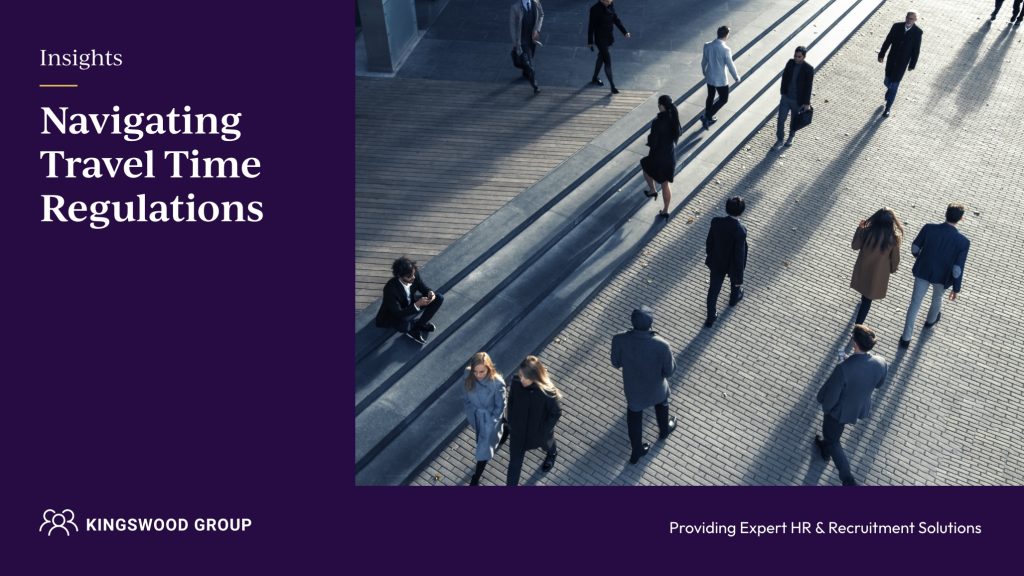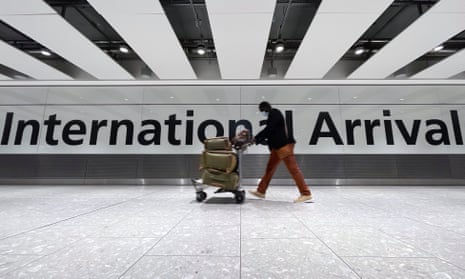

What am I entitled to when travelling for work?
Oct 16, 2018 | Jobs and Careers , Your Rights at Work. |

Working time, under the Working Time Regulations 1998, is defined as any period during which workers:
- Are carrying out their duties, and working at their employer’s disposal
- Are receiving ‘relevant training’
And so normal travel to work is not classed as working time.
Should travel time be paid?
If you are paid an hourly rate you should be given time off in lieu for any business travel outside your normal working hours. Your entitlement to time in lieu may be found in your contract of employment and if not check with your employer. Your pay should not fall below the National Minimum Wage, which has some different rules on what is ‘working time’ according to the most recent government guidance on calculating the minimum wage (Click here for more information on calculating the minimum wage) or you can download the HR Solver App for more information.
If you are a salaried member of staff payment for travel out with working hours is less common but it still depends on your contract of employment. You may be entitled to time off in lieu or overtime. This is also something which can be agreed between you and your employer if it is not covered in your contract of employment.
The management of travel expenses are normally directed by your company’s travel expenses policy.
Health and Safety for regular work travellers
If you travel regularly your employer should also carry out relevant risk assessments. Frequent travel can have a negative effect on an employee’s health, which could in turn lead to sickness absence and reduced productivity. Risk assessments should ensure that you take rest breaks if you drive regularly and your eyesight should be tested regularly also.
If you make use of your own car or van for work, your company should have procedures in place to ensure your vehicle is appropriately insured and they may regularly check for this as well as check your driver’s licence for any fines and endorsements. Using mobile phones while driving, drink driving, drug driving etc. is also likely to be covered in any company policies.

FREE GUIDE to determine if you have a good Employment tribunal Case
Not sure if you have a strong case or even any case at all for an employment tribunal?
Not sure if you should make a fuss? Feel lost and unsure? Download our free guide and in less than 5 minutes you'll know the answers and if you have a claim that might be worth something.

How to write a powerful appeal letter so your employer takes you seriously.
Learn how to create a powerful appeal letter which makes your employer really consider your case and understand that you are a force to be reckoned with...even if you are no good at letter writing.
If you have been dismissed unfairly (sacked) or issued with a disciplinary warning with no process this detailed and effective training enables you to write a powerful appeal letter. Includes, templates, timelines and training.

online interview coming up?
Online interviews are definitely the future! If you need to reset your confidence levels for an online interview and not sure how to engage this course is for you. We cover the mindset and technology that you need to be successful and of course all the questions and the best responses and how to beat all the other candidates to the job. Plus there is an amazing session by a LinkedIn expert on how to impress and update your LinkedIn profile.

FREE Disciplinary Meeting Checklist Download
Never been to a disciplinary meeting? You're not alone! It's a scary thought. Worried about it being fair, how to act, what to say, what not to say and how to prepare? Download our free checklist so you go into the meeting feeling prepared, confident and able to challenge effectively. Our checklist will prepare you with everything you NEED to know.

redundancy APPEal Letter template
Need to appeal your redundancy but not sure what to say and how to start? If you feel your redundancy was a sham or that redundancy has been used as an excuse or the company has not followed the lawful redundancy procedure. Download our quick and easy to use letter template an have your appeal letter ready in less than an hour. You'll write a professional, legally correct appeal letter stating your case intelligently. It is so easy to use as we've done all the work for you! Plus you can get support from a redundancy expert!
Related Posts

GDPR- General Data Protection Legislation Regulations
October 25, 2019

Weather – Your Employment Rights in Bad weather
June 25, 2018

Slavery – Your Rights

Should I Be Paid For Travel Time?
Recent posts.
- Free guides to help you with disputes at work.
- How do I prepare for an employment tribunal?
- A witness, companion or trade union representative at a disciplinary or grievance hearing.
- A settlement agreement in 8 easy points.
- Going to an employment tribunal myself.
HR Help Articles
- Articles (4)
- Disciplinary and unfair dismissal (17)
- Discrimination at work (9)
- Employment Law FAQs (1)
- Employment Tribunal (6)
- Family friendly Rights (2)
- Free Guides (1)
- Grievances and Whistleblowing (9)
- Health and Well-being (14)
- Introducing HR Solver (3)
- Jobs and Careers (17)
- Latest News (19)
- Redundancy (5)
- Your Rights at Work. (28)
HR and Employment Tribunal Video Advice Series
- Employment Law
- Travelling For Work Law

Peninsula Group , HR and Health & Safety Experts
Jul 9th 2019 (Last updated Mar 13th 2024 )

The law on travelling for work can be difficult to understand, especially for employers who have a number of staff with different employment arrangements. But it’s important to understand the law on travelling time to ensure staff get paid correctly and receive the appropriate amount of rest. Here are the laws you need to remember to be compliant.
Jump to section:
Travel time to work
Working time directive - travel time, paid travel time law in the uk, looking for further help.
It’s made clear in the Working Time Regulations 1998 time spent travelling to work from home, and from work to home (for those with a fixed place of work), is not considered working time. Thankfully, this if fairly straightforward for you. It means there’s no need to pay these individuals for hours spent commuting at the beginning and end of a working day.
Peninsula provides total support on any HR or Health & Safety issue you have. From unlimited advice to our full documentation and risk assessment services , we'll ensure compliance at all times, contact us today.
We provide advice and support to companies of all sizes - large (200+ employees), medium (51-200 employees), small (1-49 employees), and start-ups .
Claim your free advice call
Find the safest and easiest way to resolve your workplace issue
Employment law for travel to work is more complicated than this, though. Where many employers fall short is in understanding that travel during the working day for business purposes should get counted as working time.
For example, an employee whose duties require them to travel from one site to another for the purposes of work or training, after their working day has begun, should get paid for this time.
Employers should adopt the same rule for staff required to travel on a business trip to meet clients or customers. In these situations, it would be wise to pay employees their normal working hours.
This is even if a significant part of that day gets spent travelling overseas. It’s also advisable to offer staff time off in lieu for any business travel that falls outside of their standard working hours.
Peninsula offers expert advice from a qualified team on any HR issue you may have, contact us today to find out more.
A ruling by the European Court of Justice in 2015 set a new precedent for mobile workers who are without a fixed place of work.
This ruling found the time mobile workers, such as private care workers, spend travelling to clients from their home at the start and finish of the day should get counted as working time. It’s vital you understand when travelling time as working time.
This will help you to meet national minimum wage (NMW) requirements.
Why is this important?
Well, a misunderstanding of travelling time was a key reason given by those caught out by HMRC’s most recent naming and shaming exercise of NMW offenders. Employers also need to consider how travelling time factors into the maximum time employees are legally allowed to work each week.
Unless they sign an opt-out agreement, individuals are only permitted to work an average of 48-hours per week over a 17-week period. If you fail to factor in travelling time as working time, it may be in breach of the Working Time Regulations.
You should ensure contracts account for the specific employment relationship and the various rules that surround travel time. Getting a handle on this will be key to avoiding headaches further down the line to avoid the risk of legal action from disgruntled staff.
Get in touch with us immediately for further assistance. Need expert guidance on work and travel in the UK? Call us right now on: 0800 028 2420 .
Alongside this we provide full HR documentation services, time-saving HR software, and risk assessment services. Contact us today and see how we can help you.
Try Brainbox for free today
When AI meets 40 years of Peninsula expertise... you get instant, expert answers to your HR and Health & Safety questions
Got a question? Check whether we’ve already answered it for you…
What is employment law?
Employment law is legislation that helps to protect the relationship between both employer and employee.
Why is employment law important?
Employment law is important as it ensures all your employees are treated fairly. It helps to make sure a fair process is followed before, during and, after someone has worked for you.
What issues does employment law cover?
Employment law in the UK covers a wide range of issues. Such as disability, discrimination, dismissal and grievances, employment contracts, holiday entitlement and pay, maternity, parental or paternity leave, pay and benefits, redundancy, and working hours.
How can Peninsula help with employment law?
Peninsula can provide you with expert advice on all areas of employment law. Ensuring that you avoid claims being raised against you.
Can you be taken to an employment tribunal over employment law?
Yes if you break employment law and treat your employees unfairly they can raise a claim against you to a tribunal. This may lead to heavy financial and reputational damages.
Related articles

HR in Retail
In this guide, we'll discuss why HR in retail can be difficult, the challenges you might face, and how to manage them.
- Business Advice

Night Workers
In this guide, we'll discuss night work, the rights of night workers, and what you must do to comply with the law.

What is HR Software?
In this guide, we'll discuss HR systems, the benefits of using HR software, and how Peninsula can make your HR processes easier.
Book my free advice call
Tell us your details and availability - one of our professionals will get back to you.
Callbacks can be as quick as within 8 minutes
Please select a time
Sign up to our newsletter
Get the latest news & tips that matter most to your business in our monthly newsletter.
- Talk to us today 01245 204450 | 0203 984 6677
Meet the Team
- News and Events
- HR & Recruitment Events
HR Outsourcing
- HR Consulting
Employee Wellbeing
- Profiling & Psychometrics
Portfolio HR Strategy/Director
Recruitment Services
Our Candidates
Redundancy Outplacement Support
KG Direct Hire
Management Training Courses
- job vacancies
Understanding and Managing Travel Time in UK Employment Law

Understanding the importance of travel time in employment law is vital for businesses. Misinterpretations can lead to legal complications, affecting both operational efficiency and employee relations. This article aims to clarify the complexities surrounding travel time to work, ensuring your business stays compliant and informed.
Jump to a topic:
What is the Travel Time to Work Law?
Does travel time law affect your business, breaking down travel time classifications.
- Compensation For Travel Time
- Employee Wellbeing and Compliance in Travel Time Management
Key Takeaways
The Travel Time to Work Law in the UK primarily refers to regulations that determine whether the time employees spend travelling for work is considered part of their working hours. The cornerstone of this legislation is the Working Time Regulations 1998, supplemented by subsequent legal interpretations and rulings, such as the significant European Court of Justice Ruling of 2015.
Your business is likely to be impacted by travel time laws if:
- It employs mobile workers who travel to different locations as part of their jobs.
- Your employees undertake business travel as part of their workday.
- You operate in sectors like sales, field services, healthcare, etc., where travel is integral to job roles.
Regularly reviewing employment contracts and travel policies is crucial for ensuring that your business practices align with these laws.
Determining whether travel time counts as work time in the UK depends on several factors and specific circumstances:
General Commuting
- Definition: Regular travel from home to the primary workplace and back.
- Typical Classification: This type of travel is usually not considered part of the working day under UK employment law. The rationale is that this time is not spent under the employer’s direction or performing job duties.
- Exceptions: In rare cases, if commuting involves significant work-related responsibilities or detours to specific work tasks, it may be considered work time.
Mobile Workers
- Who They Are: Workers without a fixed or habitual workplace, such as field service engineers, sales representatives, or home care staff.
- Classification: Travel to the first and last appointments of the day is usually considered working time. This ruling, as clarified by the European Court of Justice in 2015, acknowledges that such workers are undertaking these travels as an integral part of their job.
- Implications: This classification means that employers need to consider this travel time when calculating working hours, rest periods, and potential overtime.
Business Travel:
- Context: Travel that occurs during the workday, distinct from normal commuting. This includes journeys to meetings, site visits, training sessions, or other work-related activities.
- Classification: This is generally regarded as working time. The key factor is that this travel is a directed activity, undertaken for the employer’s benefit and often within work hours.
- Considerations for Employers: Employers should clearly define what constitutes business travel in their policies and how it is recorded and compensated.
Get Expert HR Advice
Call 01245 204450 to talk to one of our HR professionals today, or use our simple online contact form.
Compensation for Travel Time: What Businesses Need to Know
Understanding the nuances of compensation for travel time is crucial for businesses to ensure compliance with employment laws and fair treatment of employees.
For Business and Mobile Workers
- When Paid : Travel time classified as working time is generally compensated. This is particularly relevant for mobile workers or those engaged in business travel. For instance, if a home care provider travels directly to a client site or a sales representative moves between appointments, this travel time is typically counted as working hours and, therefore, compensated.
- Calculating Pay : The approach to calculating pay for travel time can differ from one business to another. Some employers might pay travel time at the normal hourly rate, while others might offer a specific travel time rate, which could be different from the standard rate. It’s crucial for these details to be explicitly stated in employment contracts and clearly communicated in company policies to avoid misunderstandings.
- Impact on Working Time Regulations and NMW : Ensuring the correct classification of travel time is vital to comply with the Working Time Regulations (WTR). Incorrectly classifying travel time can result in unintentional breaches of the 48-hour working week limit set by the WTR. Similarly, when calculating the National Minimum Wage (NMW), employers must consider the total hours worked, including paid travel time, to ensure employees’ pay does not fall below the NMW for their total working hours.
Scenario : An IT consultant is based out of a central office in the city. Each morning, they commute from their home to the office. From there, they spend the day travelling to various client sites for meetings and consultations before returning to the office in the evening and then commuting back home.
Morning Commute (Unpaid) : The consultant’s initial commute from home to the office is considered a regular, unpaid commute. This is standard practice under employment law, as it’s the typical travel to the primary workplace that does not involve direct execution of job duties.
Daytime Travel to Clients (Paid) : Once the consultant leaves the office to visit client sites, this travel time becomes part of their working hours. Since visiting clients is an essential part of their job responsibilities, travelling between client locations is compensable. This includes all the travel from the office to the first client, between clients, and back to the office at the end of the day.
Evening Commute (Unpaid) : However, the final commute from the office back home is not compensated. Similar to the morning commute, this travel is considered regular commuting and falls outside of paid working hours.
- Typically Unpaid : The standard interpretation under UK employment law is that regular commuting – travel from home to a regular workplace and back – is not paid. This is based on the premise that such commuting is not carried out under the employer’s direction or as part of the employee’s core job duties.
- Exceptions : However, there are notable exceptions. If the commute involves additional work-related tasks – for example, carrying company equipment to a worksite or detours for client meetings – it may be considered compensable work time. Additionally, if an employee has no fixed work location and their first or last destination varies daily, their travel may also be classed as working time. s.
Employee Well-being and Compliance in Travel Time Management
Managing travel time effectively is a multifaceted task that goes beyond mere adherence to legal standards. Equally important is ensuring the well-being of your workforce, a vital component in fostering a productive, engaged, and satisfied team.
Ensuring Adequate Rest Breaks
- Mandatory Rest Periods : Under UK employment law, it’s crucial to provide workers with a minimum of 11 continuous hours of rest every 24 hours. Additionally, if the workday exceeds six hours, employees are entitled to a 20-minute uninterrupted break. Importantly, when travel time contributes significantly to the length of the working day, you may need to adjust break schedules to maintain legal compliance and support employee well-being.
Complying with Working Hours Limits
- 48-Hour Workweek : Remember, the total working hours, including travel time, should not surpass 48 hours per week, as per the Working Time Regulations. Should this limit be exceeded regularly, the employee must have a signed opt-out agreement. Without such an agreement, you may need to rethink workloads or consider increasing your staffing.
Effective Travel Time Monitoring and Optimisation
- Transparent Monitoring : Align with the European Court of Justice’s directive by accurately recording travel times. Ensure this monitoring is done transparently and in compliance with GDPR to respect employees’ privacy rights.
- Route Optimisation : Encourage and enable employees to choose the most direct routes for travel. This not only reduces total working hours but can also decrease fatigue and enhance productivity.
Regular Updates to Employment Contracts
- Contractual Accuracy : Continuously update employment contracts to reflect the actualities of working hours, break entitlements, opt-out clauses, scheduling responsibilities, and work locations. This clarity benefits both the employer and employee by setting clear expectations and maintaining legal compliance.
- Incorporating Flexibility : Particularly for mobile workers, ensure that contracts accommodate the flexible nature of their roles, including variable start and end times based on travel.
- Definition and Scope : The UK’s Travel Time to Work Law, governed by the Working Time Regulations 1998 and the European Court of Justice Ruling of 2015, sets the framework for determining if travel time is part of working hours.
- General Commuting : Regular travel from home to the workplace typically is only counted as working time if it involves specific work-related tasks.
- Mobile Workers : Employees without a fixed workplace, like field technicians or home care staff, usually have their travel time to and from their first and last appointments counted as working hours.
- Business Travel : Travel during the workday for business purposes, such as meetings or site visits, is generally regarded as working time.
- Compensation for Travel Time : It’s essential for employers to clearly define and communicate compensation methods for travel time, especially for mobile workers and during business travel, ensuring compliance with employment laws.
- Adherence to WTR and NMW : Accurate classification of travel time is key for adhering to Working Time Regulations and ensuring employees’ wages meet or exceed the National Minimum Wage.
- Remote and Flexible Work Adaptations : As work arrangements evolve, reassessing and updating travel time policies is necessary to ensure they remain fair and compliant while also considering employee well-being.
- Importance of Regular Policy Review : Consistent policy reviews and clear communication are crucial in aligning with travel time regulations, enhancing transparency, and supporting a positive work environment.
- Prioritising Employee Well-Being : Beyond legal compliance, consider the impact of travel time on employee well-being, work-life balance, and overall job satisfaction.
Frequently Asked Questions
For mobile workers without a fixed workplace, ‘working time’ includes travel to the first and last appointments of their day. This was clarified in the European Court of Justice’s 2015 ruling, recognising that such travel is integral to their roles.
No, regular commuting – the travel from home to a regular workplace and back – is generally not considered working time under UK employment law.
Yes, there are specific exceptions where commuting time can be considered work time under UK employment law. These exceptions typically occur when the commuting involves additional work-related responsibilities or tasks. For instance:
Detours for Work Tasks: If an employee is required to perform a task or attend a meeting at a location different from their usual workplace, the travel time to and from this location could be considered working time.
On-Call Scenarios: In cases where employees are on-call and must travel to a workplace or another location to address a work situation, this travel time can be classified as working time. This is often applicable in sectors like healthcare, emergency services, or IT support.
Travel as Part of the Job: For employees whose job roles specifically include traveling, such as salespeople visiting clients or technicians going to different sites, the travel time is part of their working hours.
Irregular Work Locations: Employees who do not have a fixed workplace and travel to different locations as part of their regular work routine may have their travel time considered as working time.
It’s important for employers to clearly define in their policies how these scenarios are handled and to ensure that any such travel time is recorded and compensated according to legal requirements.
Compensation for travel time varies. Travel classified as working time, especially for mobile or business travel, is typically paid. The rate and method of compensation should be outlined clearly in employment contracts and policies.
Yes, the application of travel time laws can vary significantly across different sectors, each with its unique considerations:
- Healthcare Sector: In healthcare, professionals like home care workers or community nurses often travel as part of their workday. Their travel time between patient visits is typically considered working time. Additionally, on-call situations, where staff must travel to a healthcare facility or a patient’s home, also constitute working time.
- Sales and Consulting: In sales or consulting, travel to client meetings, regardless of the location, is often considered working time. This applies even if the travel starts from the employee’s home rather than the usual workplace. .
- Transportation and Logistics: For drivers, pilots, and other transportation roles, travel time is intrinsic to the job and is counted as working time. However, the time spent commuting to the first pick-up location or from the last drop-off location may not always be included.
- Office-Based Roles: Generally, in standard office-based roles, regular commuting is not considered working time. However, travel during the workday for business purposes, like off-site meetings, is typically counted.
Each industry might have specific contractual agreements or policies that further define how travel time is considered and compensated. Therefore, it’s important for businesses in each sector to understand and apply these laws accurately, considering their unique operational models and employee roles.
To ensure compliance with travel time regulations, businesses can take several proactive steps:
- Stay Informed: Keep abreast of any changes in employment law related to travel time.
- Policy Revision: Regularly review and revise travel policies to reflect current laws and business needs. Ensure these policies are tailored to the specifics of your industry and the nature of your employees’ work.
- Digital Solutions: Implement reliable digital time-tracking systems to accurately record travel and working hours, particularly for mobile employees.
- Integration: Ensure these systems integrate smoothly with payroll and HR systems for efficiency and accuracy.
- Employee Awareness: Clearly communicate any updates or changes in travel time policies to all employees. This ensures everyone understands what is expected and how travel time is recorded and compensated.
- Managerial Training: Train managers and supervisors on how to implement and monitor these policies effectively.
- Maintain Records: Keep detailed records of employees’ travel and working hours. This documentation is crucial for both internal audits and potential legal inquiries.
- Seek Expertise: Consult with legal experts specializing in employment law to ensure your policies comply with legal requirements. This is particularly important for businesses with complex travel scenarios or those operating across different regions with varying regulations.
- Open Channels: Establish a system for employees to provide feedback or raise concerns about travel time and its recording. Addressing these concerns can prevent misunderstandings and potential legal issues.
- Respond to Changes: Be prepared to adapt policies in response to changing work patterns, such as increases in remote working or changes in business operations.
By taking these steps, businesses can comply with travel time regulations and foster a transparent, fair, and efficient working environment. Regular updates, clear communication, and the use of technology are key in managing the complexities of travel time in the modern workplace.
Need Expert Guidance?
If you’re navigating the complexities of travel time regulations and adapting to the modern workplace, our team of HR professionals is here to help. We offer personalised advice and solutions tailored to your specific industry and organisational needs. Contact us to ensure that your travel time policies are not only compliant but also effective and fair.
The information provided in this article, “Navigating Travel Time Regulations | Understanding UK Employment Law,” is for general informational purposes only and should not be construed as legal advice on any subject matter. While we strive to present up-to-date and accurate information, the laws and regulations regarding travel time and employment may change and vary by jurisdiction.
Content last reviewed 23rd November 2023

Sarah McKee-Harris Founder, Director & CEO
Sarah has 16 years of experience in HR tTalent Acquisition, working extensively in both London and Essex. Her approach to HR is rooted in a simple yet effective philosophy: taking the time to listen, understand, and question our clients to pinpoint their unique business needs.
- HR Consultancy London
- Equality Diversity & Inclusion Training Course
Managing Sickness Absence Training
Business Skills Training
Health and Safety Training
Health and Social Care Training
- Bradford Factor Calculator
- Memberships & Associates
Our Refer a Friend Programme
Sustainable HR
Archive Webinars
Talk to a HR professional today 01245 204450 | 0203 984 6677
HR Services
HR Consulting / Projects
Profiling & Psychometrics
Training & Development
Equality Diversity and Inclusion Training Course
Recruitment
Membership & Associates
Updates & Events
News & Events
HR and Recruitment Events
Manchester 0161 832 2500 | London City 0204 505 8080 | London Finchley 020 8349 0321
Is Travelling for Work, Working Time?
Is travel time between home and a temporary workplace, outside of normal working hours, working time?
Neither the European Working Time Directive nor the Working Time Regulations 1998 say anything about whether travel to and from a place of work counts as working time. If there is no express agreement with an employer to say that certain travelling time is to be regarded as working time. The question is simply whether the worker can be said to satisfy all three limbs of the definition of ‘working time’, in that:
- (a) they must be working,
- (b) they must be at their employer’s disposal, and
- (c) they must be carrying out their duties or activities.
Non-statutory guidance suggests that where workers, such as travelling sales representatives, have to travel as part of their job, that constitutes working time but travel outside of normal working hours is not included in working time. Time spent commuting is not usually considered to be working time because the worker is not usually at the employer’s disposal until they reach the workplace. This is the case, even if the worker uses some of their daily commutes to carry out work-related activities, such as making telephone calls or reviewing documents.
The question of whether travel to a place other than a normal workplace if the journey begins or ends at the worker’s home was addressed by the ECJ in Federacion de Servicios Privados del sindicato Comisiones obreras v Tyco Integrated Security SL . This case concerned a group of workers who drove to customers throughout Spain to install security systems. When the company closed its provincial offices and required the workers to drive straight from their homes to their first assignment, the question arose as to whether this was working time. The ECJ held that for peripatetic workers, who are not assigned to a fixed place of work, the time spent travelling from their home to their first assignment, and from their last assignment back to their home, should constitute working time. The travelling is still done within the context of the hierarchical employment relationship. So the journeys are subject to the authority of the employer, who can choose to change the order of customers or cancel an appointment, or require workers to call on an additional customer on their journey home.
The ECJ’s decision in Tyco was cited in the case of Thorbjorn Selstad Thue v The Norwegian Government , which came before the Court of Justice of the European Free Trade Association (the EFTA Court). This case addressed whether time spent travelling between home and a temporary workplace for a single assignment is working time.
Mr Thue, a chief inspector of police, was based at a particular police station in Norway. He worked in various locations when on assignments escorting government ministers visiting the district. He claimed in the Norwegian courts that travelling to and from those temporary workplaces for these specific assignments was working time. When his claim was rejected, both initially and on appeal, he appealed to the Supreme Court of Norway, which referred the issue to the EFTA Court.
Although the ECJ’s decision in Tyco was cited, in that case, the workers were completely peripatetic and travelling to different places every day, whereas in this case Mr Thue always had a permanent base. Nonetheless, the EFTA Court held that the travel time between Mr Thue’s home and the place of his assignment, which was often much further away than the police station at which he was based, should constitute working time. The Norwegian Government argued that the case could be distinguished from Tyco, where the workers had no permanent base which meant that travel to and from their homes was an inherent part of their duties. The EFTA Court disagreed saying that this would distort the concept of working time with the result that only a truly peripatetic worker or one with a completely fixed workplace would be protected, leaving those in an “intermediate” position (such as Mr Thue) unprotected.
Although the jurisdiction of the EFTA Court is not strictly binding on EU countries, it will still be persuasive.
Should your workers be paid for their travel time? If you are unsure get in touch with out expert Employment Solicitors to discuss your situation.
Related Articles

BBS Law Announces Acquisition of Manuel Swaden, Further Strengthening Property and Private Client Specialisms

Surge in Inheritance Disputes – Exploring the Rise in Conflict within the Courts of England & Wales

Introducing Joanna Toloczko: BBS Law’s New Partner and Head of Family Law
Published on 20 Sep 2019
- Travel time to work law
Helen H In-House Employment Lawyer Helen has over 14 years of experience advising businesses on all aspects of employment law.

- Day to Day HR
As a small business owner, it can be tricky keeping up to date with different employment laws. Sometimes it seems as if the rules are constantly changing, particularly around hours and holidays, and this can cause a lot of worries for employers who don’t want to risk a tribunal claim. Today we talk about travel time to work and what the law says.
The laws around travelling for work, and if this counts as ‘working time’, can seem complicated. We’ve put together this article in order to answer any questions you have and restore your confidence that you’re doing things right.
Is travel time considered work time?
To understand the laws around when ‘travel time’ counts as working time, there are two key rulings you need to know about.
1. Working Time Regulations 1998
Does commuting time count as working time? Answer: No.
This UK law (not including Northern Ireland) states that time spent commuting to and from the workplace does not count as part of the working day. This is because employees are not at the employer’s disposal when commuting, and don’t have to carry out any duties while doing so.
2. European Court of Justice ruling 2015
Should travel time for mobile workers be counted as working time? Answer: Yes.
The outcome of this ruling was that any workers without a fixed place of work, who travel between clients and appointments from their home, should have that travel counted as part of their working time.
The reason for the ruling is that these types of workers are having to follow a set schedule and are at the disposal of their employers, carrying out their duties on behalf of the business they work for. They have no control over where they travel to and are not able to spend their time freely.
Therefore, the court ruled that their travel time needed to count as working time so that they would be entitled to the legal amount of rest periods within their full work day.
How to know if the travel time laws affect your business
Whether these rulings affect your business will depend on the nature of how your employees work and how much control they have over their work days. Generally speaking, if your employee has to follow a tight schedule of appointments set out by you or their line manager, then their travel will probably count as working time.
An individual’s travel is unlikely to count as working time if they:
- have the flexibility to manage their own work schedule
- are self-employed
- are a contractor.
Get expert HR advice
Our HR consultants can help guide you through your employee issues.

20th Sep 2019
The Working Time Directive explained

8th May 2019
Holiday pay: When to include overtime in calculations?

24th Sep 2019
Holiday entitlement during notice period
Get help with your HR
Get free employment law alerts.
- Email Address *
- I'm happy to hear from citrusHR about improving HR in my business.

Understanding the Working Time Regulations - Working time rules
Understanding the working time regulations.
- The 48-hour weekly maximum
- Being on call
- Night workers
- If someone travels for their job
- Jobs with different rules
- Agreeing a change – relevant agreements
The law on working time (The Working Time Regulations 1998) sets rules for:
- the maximum weekly working hours, and how someone can work more hours if they choose
- rest during the working day, week and year – find out more about the right to rest
- young workers' maximum working hours and rest breaks
- special arrangements when there's an emergency or if someone is not able to take their rest
- holiday entitlement – find out more about holiday
This is to protect everyone's health, safety and wellbeing, and it applies to:
- agency workers
- apprentices
- casual and seasonal workers
- doctors in training
- zero-hours workers
The Working Time Regulations 1998 is the law that applies the EU Working Time Directive to England, Scotland and Wales.
What counts as working time
By law, working time is when someone is:
- at the employer's 'disposal' – this means the employer can tell them what they can or cannot do in that time
- carrying out work activities, duties and training
Working time usually includes time spent:
- travelling to a customer or client, for example if the job is a travelling salesperson
- training that someone needs to do the job
- being on call while at the place of work, for example a hotel night manager who needs to be available in case guests need them
What does not count as working time
Working time usually does not include:
- routine travel to and from home and the workplace if the person has a set workplace, for example a regular commute to an office or factory
- rest breaks when no work is done
- travelling outside of normal working hours, for example to get to a conference
- training that is not work related, for example a course the person has chosen to organise and do for themself
Find out more about:
- rest breaks
- working time when someone has to travel as part of their job
Keeping records of working hours
An employer does not need to keep records of all daily working hours.
However they must keep records to prove that:
- employees are not working more than the 48-hour weekly maximum – this is unless they have an opt out agreement
- they are not breaking limits for night working
- they have offered regular health assessments for night workers
- young workers are not working during a restricted period
Employers must keep these records for 2 years from the date they were made.
Having clear and easy to understand records can help employers:
- prevent disputes
- protect the health, safety and wellbeing of their employees
If an employer does not follow the law
If an employee thinks their employer is not following the law for working time, they could first try resolving it by:
- talking with their employer informally
- raising a grievance – making a formal complaint to their employer
If the employer still does not resolve it, depending on the issue the employee may be able to:
- make a claim to an employment tribunal
- report it to the Health and Safety Executive (HSE) or their local authority
When an employee can claim to an employment tribunal
An employee can make a claim to an employment tribunal if their employer has not followed the law on any of the following:
- rest breaks during the working day of at least 20 minutes, if the employee is expected to work more than 6 hours during the day
- daily rest of 11 hours between working days
- weekly rest of 24 hours any 7-day period, or 48 hours in a 14-day period
- holiday entitlement
They may also be able to claim if they have experienced detriment or been dismissed because they raised a concern about working time.
Detriment means someone experiences one or both of the following:
- being treated worse than before
- having their situation made worse
Examples of detriment could be:
- their employer reduces their hours
- they experience bullying
- they experience harassment
- their employer turns down their training requests without good reason
- they are overlooked for promotions or development opportunities
What an employee can report
An employee can report it if their employer does not follow the law on any of the following:
- the 48-hour maximum weekly working time limit
- night work limits and night work special conditions
- transfers of workers from night to day work
- compensatory rest for night work
- health assessments for night work for adults and young workers
- record-keeping requirements
It depends on the type of workplace whether the employee should report it to either:
- the Health and Safety Executive, for example for building sites, factories, hospitals, schools
- the local authority, for example for hairdressers, health clubs, offices, shops
Get more advice and support
Contact the Acas helpline to:
- talk through any questions about working time
- report an employer
You can also use the pay and work rights complaint form on GOV.UK .
If you like, you can tell us more about what was useful on this page. We cannot reply – so do not include any personal details, for example your email address or phone number. If you have any questions about your individual circumstances, you can contact the Acas helpline .
- Practical Law
Working time: travelling
Practical law uk articles 2-617-5078 (approx. 3 pages).
- Working Time and Time Off
- European Union
- United Kingdom
What is Reasonable Travelling Distance?

Your staff’s daily commute to work comes in many forms—cycling, trains, cars, and everything in between.
In the UK, cars are the most popular mode of transport. Trains and buses are the next most common options.
A 2019 survey by the Trade Union Congress (TUC) shows that the average commute to work increased by five minutes over the last 10 years. The time your employee spends commuting to work can have an impact on their performance. It will also affect their wellbeing and job satisfaction levels.
This piece explores the employment law surrounding reasonable daily travelling distances.
Reasonable travelling distance
Changes must be in line with employment law. Reasonable daily travelling distances in the UK aren’t specified in existing legislation. However, you should apply common sense and consider various local conditions.
There are specific circumstances where it is important to consider the distance your employees travel for work. For example:
- A planned move
- A change of duties
- A change of working hours.
- Alterations to the services you provide
It’s important to check if an employee’s contract of employment includes a ‘mobility clause’, the employee has to move to the new location. This is unless they can prove the request to move is unreasonable.
But how long is too long to commute to work? It’s each employee’s decision—they should determine what is, and isn’t, too long a distance to travel on a daily basis.
But you can keep in mind the extent of their individual journeys. This information is an indication of whether it’s a reasonable distance to travel to work. And, if necessary, you can make adjustments to their route to improve their work-life balance—more on this below.
The cost of commuting to work
Based on a survey last year , the average employee spends £1,738 per year travelling to work, this amounts to a total of £134,695 over the span of a lifetime.
This figure doesn’t include the value of the time they spend commuting. According to research conducted by the TUC, the average commuting time is 59 minutes.
Some of the consequences of a lengthy commute are stress, anxiety, increased absence, and reduced productivity. You can improve the situation for employees by offering:
- Flexible or remote working.
- Job sharing.
- Annualised hours.
- Work from home, etc.
The development in technology allows teams to communicate with each other from different parts of the globe. Consider whether this will make home-working an option for your employees . If you’re uncertain, implement a trial period and monitor performance throughout.
Expert Advice
If you require assistance with working hours, flexible working requests, or any other HR issue , speak to a Croner expert today 01455 858 132 .
If you like this content, you may also like

- Shift Pattern Change Laws

- Employment Tribunal

- Work Uniforms: Employer's Guide
About the Author

Andrew Willis is the senior manager of the Litigation and Employment Department and assumes additional responsibility for managing Croner’s office based telephone HR advisory teams, who specialise in employment law, HR and commercial legal advice for small & large organisations across the United Kingdom.

@AndrewWillisCGL

Related resources
- Business Advice
- Contracts & Documentation
- Culture & Performance
- Disciplinary & Grievances
- Dismissals & Conduct
- Employee Conduct
- Employment Law
- End of Contract
- Equality & Discrimination
- Health & Safety
- Hiring & Managing
- Leave & Absence
- Managing Health & Safety
- Occupational Health
- Pay & Benefits
- Recruitment
- Risk & Welfare
Any Questions?
Call us today on 01455 858 132 or fill in your details below to speak to an expert.
Get expert views & insights delivered directly to your inbox
Home » Knowledge Hub » Blogs » Employer Responsibilities: International Business Travel
Employer Responsibilities: International Business Travel
With businesses become increasingly connected across the globe and the growth of hybrid working models, the number of employees travelling internationally for work continues to rise. It is estimated that international business travel has increased by 25% in the last 10 years – despite the global pandemic – and is set to increase further.
If your business has any employees who travel abroad for work, no matter the duration of the travel, it’s your legal and moral responsibility to have a plan in place to protect them. Business travel includes any employees travelling for activities such as:
- for a conference, event, or exhibition,
- for a business meeting either with customers, prospects, or suppliers,
- to provide services (e.g. entertainment), or
- for work-related training.
Despite 8 out of 10 travellers feeling as though their personal safety could be threatened while abroad, a 2019 study of frequent travellers found that only 31% considered their own safety as the most important factor when taking a business trip and over half (54%) believed that safety is not their company’s top priority.
Employer’s legal responsibilities for employee travel
The Health and Safety at Work Act 1974 requires employers to take all reasonable steps to ensure the health, safety and wellbeing of employees. This includes protecting staff when they are required to travel for work: throughout the UK and internationally.
Before a work trip takes place, organisations are legally required to conduct a business travel risk assessment. This should involve researching and evaluating the risks associated with travelling for work, as well as the specific risks involved with the employee’s destination. As part of this risk assessment, employers are also required to have a plan in place to protect their employees should any of these identified risks occur.
Additionally, under UK common law, employers have a duty to take reasonable care for their employees. Within the context of travel, this means that employers have a legal obligation to implement all reasonably practical steps to reduce the risks involved with employees travelling for business, no matter where they are.
Download our employer travel responsibilities checklist
In reference to employers’ duty of care, IOSH commented “this duty of care continues to exist when their employees are sent to work in other jurisdictions, either on a short-term basis or as part of a longer-term arrangement” and may also cover “a worker’s travel arrangements to or from work on a day-to-day basis while working abroad” as well as “the employee’s safety while in transit”.
In order to ensure your business is fulfilling its duty of care , it is recommended to devise a duty of care plan alongside conducting your risk assessment, as this can help to highlight areas that may have been missed. The duty of care policy should consider risks such as:
- How many hours the employees are working while travelling
- The safety of employees in the location they are visiting
- The training provided to employees on safe practices
- The mental wellbeing of employees while travelling
Related Products

Overseas business travel guidance
Further to the legislation imposed on organisations, specific work-related travel guidance has been created to help employers ensure they are fully protecting their workers while travelling.
Working in collaboration, the International SOS and the British Standards Institution (BSI) published PAS3001 :2016 Travelling for Work, which according to the BSI “has been developed to give organisations a tool to help them protect their mobile workforce and themselves”. This document gives recommendations on business responsibility in respect of the health, safety and security of individuals travelling for work.
This publication notes that workers may be travelling between relatively safe and high-risk locations, but that “even a relatively safe destination can rapidly degenerate into a high-risk destination due to health, safety, security, political or social reasons, or natural disasters”.
To combat this and protect employees, this document states that organisations should:
- Develop and maintain systems and arrangements to inform, protect and assist the traveller
- Assess the need for, and provide training and information to the traveller if necessary
- Define the role of external assistance providers in helping the organisation manage travel safety, health and security
- Maintain a system to report on the performance of travel, safety, health and security
Similarly, the IOSH and the International SOS produced a guidance document: Managing the Safety, Health and Security of Mobile Workers: An Occupational Safety and Health Practitioner’s Guide .
This document aims to enable organisations to translate the duty of care “into policies, processes and actions that will protect your workforce and thereby not only support your business aims but also improve your organisation’s reputation and credibility”.
Both documents make reference to the need to have a crisis management procedure in place, stating “Any organisation should have global as well as local arrangements in place for a crisis or an emergency.”
Fulfilling your international travel duty
Prevention is key in upholding both your moral and legal duty, and in safeguarding your team. Here is our advice for creating a comprehensive safe travel procedure:
1. Assess your current travel risk assessment
Having a thorough travel risk assessment in place will identify any anticipated risks and help you to implement measures to protect your employees from these risks. If you already have a travel risk assessment in place, this should be reviewed at least annually and any time an incident occurs.
A travel risk assessment is integral to achieving duty of care obligations. The goal of the risk assessment is to identify any threats that an employee could face whilst traveling; making it possible to identify and manage the potential risks before they happen. Completing a specific travel risk assessment demonstrates you and the traveller have done some form of due diligence prior to the activity taking place.
Travel risks are constantly changing, and the assessment needs to cover everything from missing a flight to a global pandemic. Recommended vaccines, how and where to access medical treatment, employee medical details and emergency service contact numbers should all be considered. It may also be appropriate to brief employees on cultural norms before visiting new destinations.
Risk factors faced by specific groups also need to be taken into account. For example, a study by Global Business Travel Association (GBTA) and AIG found that 83% of female business travellers reported a safety concern or incident in the past year.
The best intelligence can often come from consulting with employees who frequently travel and have first-hand experience with incidents while travelling.
2. Employee travel safety contingency plans
Incorporate contingencies into your general travel policy, as well as into the plan for specific trips. Employees should know that there is a backup plan for emergencies that is reliable and up to date. Most importantly, this plan should contain information on emergency services and where the nearest embassy or evacuation point is for foreign nationals.
There are lots of opportunities for things to go wrong when an employee is travelling for business, but there should be as system in place for if any of these incidents occur. Some common risks faced by travellers include:
- Becoming injured or ill and requiring medical attention
- Being attacked or robbed
- Misplacing important documentation, such as a passport
- Missing a flight
- Not having a way to contact emergency services
3. Implement an international personal safety service
Even with proper planning and procedures in place, not all risks can be mitigated. Having an international personal safety service in place will allow employees to access help in the event that an incident occurs while travelling abroad.
Peoplesafe’s Global Response is an escalation service for at-risk employees no matter where they are in the world. Using Global Response, employees can raise an alarm via the SOS App , which will be received by the Peoplesafe ARC . The Alarm Controller will capture all of the necessary information and report the incident to the user’s designated escalation contact, following the Global Response alarm process established during setup, who will then handle the incident. The alarm will only be closed once the Controller is able to confirm the user’s safety.
Alternatively, employees travelling within Europe and Mexico can benefit from Peoplesafe’s Eurowatch service – also available via the Peoplesafe Pro App. Eurowatch provides employees with 24-hour access to police via the Peoplesafe ARC and our partnership with Teletrac Navman, meaning there is no need for employees to be able to speak the local language in order to get help. Each country has a local response service which Peoplesafe will liaise with directly.
When an SOS alarm is activated via the Peoplesafe Pro App, the Peoplesafe ARC receives an alert with the user’s profile and GPS position. A two-way audio communication channel is also opened allowing the ARC Controller to gather information about the situation in progress. If a local service is required, the Controller will contact Eurowatch to raise an incident which will then be passed to the National Service Provider (NSP) in the country of incident who will be able to dispatch emergency services if necessary.

- TWIG Ex (ATEX)
- Standard Mobile
- Peoplesafe SOS App
- Smart Button
- MySOS ID Badge 4G
- Peoplesafe Pro Lone Worker App
- Body Worn Camera
- Haulage & Distribution
- Professional Services & Government
- Hospitality
- Estate Agents
- Construction
- Manufacturing
- Real Life Stories
- Case Studies
- Whitepapers
- Legislation
- Partnerships
- Accreditations
- Service Status
- Privacy Policy
We use cookies to help provide a better website experience for you, as well as to understand how people use our website and to provide relevant advertising.
By clicking "I agree", you'll be letting us use cookies to improve your website experience. To find out more or to change your cookie preferences, click "Manage Cookies".
Like many other websites, our website uses cookies. Cookies are small files placed on your computer when you visit our site. They serve a number of purposes, including ensuring that certain parts of the website work properly, allowing us to understand which areas of our website are the most popular and allowing us to provide more relevant advertising messages. They don't allow us to identify you directly.
If you'd prefer that cookies weren't placed on your computer when you visit our site, you can use the controls below to allow or disallow different types of cookie. Some cookies are essential for the website to work, so they can't be disallowed.
These cookies give us anonymised information on how people use our website. We use these cookies to help us tailor our site to meet the needs of our visitors, for example by making sure our most popular pages are easy to find.
These cookies serve a number of purposes, such as allowing you to share our content with your friends and social networks. We also use these cookies to provide targeted advertising, so you may see relevant adverts based on the pages you look at on our website.
We're here 24/7, 365 days a year.
- News & Insights
- Newsletters
Is travelling to and from work likely to count as working time?
Yes, according to the Advocate General in Federacion de Servicios Privados v Tyco Integrated Security but only for peripatetic employees with no fixed or regular workplace . If this opinion is followed by the European Court of Justice (as is normally the case) employers will have to include travel to the first and from the last customer of the day in their calculations of working time. This could have a knock-on effect on pay breaks and maximum working hours.
Will this affect your business?
The current UK position
The Working Time Directive defines ‘working time’ as any period during which the worker is working, is at the employer's disposal and is carrying out his activity or duties in accordance with national laws. A ‘rest period’ means any period which is not working time.
Neither the Directive nor the Working Time Regulations (which implement the Directive in the UK) say anything about whether travel to and from a place of work or between places of work should be counted as working time. Non-statutory guidance from the UK Government suggests that ‘time spent travelling for workers who have to travel as part of their job, e.g. travelling sales reps or 24-hour plumbers’ is included in working time, but that ‘normal travel to and from work and ‘travelling outside of normal working hours’ are not.
Background to the case
This case involved Spanish workers who had to travel between clients as part of their jobs which involved installing and maintaining security alarms. They were each assigned different regions and could travel up to 100km to reach customers. Time spent travelling from and to their provincial offices at the beginning and end of the working day was counted as working time.
As a result of a reorganisation (and the closing down of all of the provincial offices), the workers no longer had a base. Instead, they had to travel from home to work and respond to mobile phone messages which told them, in advance, what route to travel and the work that they had to do. The business treated travelling from home to the first customer of the day and returning home at the end of the day as ‘rest time’.
Under Spanish national law, time spent travelling between a worker's home and workplace is not normally considered to be working time because a worker is free to choose where to live, and therefore to decide how far they live from the workplace. The Spanish court felt that this argument did not apply to these workers because they had no fixed workplace. The court referred the issue of what constitutes working time to the ECJ.
Opinion of the ECJ
The Advocate General said that the following three criteria must be satisfied in order for time spent travelling to count as working time. The workers must be:
- at the workplace;
- at the disposal of the employer; and
- carrying out their activity or duties.
The Advocate General viewed travelling as an integral part of being a peripatetic worker and, as such, part of the activity or duties of those workers. The most difficult criterion to determine was whether the workers could be said to be at the disposal of their employer during the first and last journeys of the day. The Advocate General considered that these journeys were still subject to the authority of the employer because it could choose to change the order of customers or cancel an appointment, or require workers to call on an additional customer on their journey home.
What happens next?
Opinions of the Advocate General are not binding on the ECJ but they are often followed. A final decision is expected within the next few months.
Will this impact on the amount of pay workers are entitled to receive in the UK?
If travelling time at the beginning and end of the day has to be counted as working time, employers must ensure that adequate rest breaks are taken and, if necessary, ask the employee to sign an ‘opt out’ agreement from the maximum 48 hour working week.
Under the National Minimum Wage Regulations time spent travelling to and from home will not usually count as working time and will not have to be paid or taken into account to determine whether the NMW threshold has been met. Employers may, however, face requests from hourly paid workers to be paid for travelling time.
Previous Article | Newsletter Home | Next Article

For general enquiries
Or we can call you back at a time of your choice
Contact us today
For a free initial consultation
0370 1500 100
Prefer not to call?
Use our form
This data will only be used by Irwin Mitchell for processing your query and for no other purpose.
About Irwin Mitchell
Founded in Sheffield in 1912, Irwin Mitchell has always been a bit different. Our advisers really get to know the people and business that we help.
We have offices around the UK so wherever you are, our experts can help.
Give us a ring to speak to a member of our team in the strictest confidence. Or you can fill out our contact form and we'll ring you back.
Our phone lines are open 24/7, 365 days a year
Get a call back
Fill in your details below and we'll be in touch as soon as possible
Request A Callback
Enter your details below and a member of our team will contact you within 24 hours
- Careers at Nelsons
- Fusion Legal
Paid Travel Time For Work
Written by [email protected]
In many industries workers do not have a fixed or regular place of work, instead travelling directly from home to various locations, such as customer premises, suppliers and events, etc.
Under the European Working Time Directive, “working time” covers any time when the worker is working, at the employer’s disposal and carrying out their activity or duties. The Working Time Directive is implemented in the UK via The Working Time Regulations (WTR) and neither provides any guidance on whether travel to and from work or between places of work should be classed as working time.
Paid travel time for work
In order to assess whether time is “working time”, the following three questions must be asked:
- Is the individual working?
- Is the individual carrying out his duties?
- Is the individual at their employer’s disposal?
The lack of guidance regarding the issue of what does and does not “constitute” working time has led to widespread confusion and litigation, particularly as workers have the right to be paid for the time they spend travelling between different assignments during their working day.
The confusion in this area was highlighted in a recent poll commissioned by Department for Business, Energy and Industrial Strategy (BEIS) , which found that 4 in 10 workers wrongly believe they are not entitled to a minimum wage for the time they spend travelling between assignments. This misconception was more prevalent among older male workers.
As this issue continues to be reported in the media and press, workers are likely to check their payslips and seek advice in relation to their position. It is vital that employers are aware of the current legal position in relation to travel time and working time to ensure compliance with wage rules.
How Nelsons Can Help
For further information or to comment on this article, please contact our Employment Law team on 0800 0241 976 or via our online form .
Related articles

Ted Baker To Close 15 Stores – Redundancy Rules When A Business Goes Into Administration

Neurodiversity In The Workplace

Employment Law Changes In 2024
Request a document we are storing for you, join our mailing list to keep up to date with our latest news and events.
Employment Law Reasonable Travelling Distance Rules
Anne morris.
- 29 October 2020

IN THIS ARTICLE
If you are relocating to new premises, or asking an employee to move to another office or branch, you will need to understand how you can legally request a move. This includes exactly how far you can expect an employee to travel to their new place of work.
However, the employment law rules relating to reasonable travelling distance are by no means clearcut, where what counts as “reasonable” – and whether an employee can lawfully refuse to relocate to a new place of work – will depend on the specific facts and circumstances of each matter.
The following guide for employers and HR personnel looks at what the law says about reasonable travelling distance for employees, and what factors need to be taken into account when asking an employee to work in a different location. It also looks at ways in which you can approach any request to relocate, making the transition as smooth as possible.
Asking an employee to relocate
There are various reasons why you may be considering moving premises, or asking staff to relocate to a different branch or office, especially in the current economic climate where a move may help you to cut costs or where staff are needed in other areas of the business.
That said, even where the reasons for relocation are legitimate, your right to ask an employee to work elsewhere will primarily depend on the terms and conditions of their employment contract. If their contract of employment contains an express mobility clause requiring them to undertake their job role at a different location, assuming that clause is not too widely or unfairly drafted, they must agree to any reasonable request that falls within its scope.
For example, where a mobility clause provides that the employee has to move within certain limits, for example, within a set radius, and the proposed relocation falls within those limits, in theory the employee will be contractually obliged to work in the new location.
In limited cases, even in the absence of an express term requiring an employee to relocate, it may be reasonable to imply a term to this effect. This could be, for example, where the reason for the change to an employee’s place of work is due to business efficacy.
It could also be where a contract is silent as to an employee’s place of work but requires the employee to provide such duties as are necessary for the conduct and management of the company’s affairs. However, the ambit of any implied term is likely to be extremely narrow and would still require any new place of work to be within a reasonable travelling distance.
What is the maximum reasonable travelling distance for work?
What constitutes a reasonable daily travelling distance is not defined by legislation. This means that there is no maximum distance permitted by law, but rather you should take account of the scope of any mobility clause and apply some common sense, factoring in local traffic or travel conditions based on the extra commute involved.
What constitutes a reasonable commute distance, for example, will depend on the terms of the employee’s contract of employment, and the scope of any mobility clause allowing for relocation. You will also need to factor in local traffic or travel conditions.
In circumstances where the mobility clause requires an employee to relocate to a different part of the country, this is less about reasonable travelling distance and more about providing reasonable notice to allow an employee to find somewhere new to live. In many cases, these types of mobility clauses will also make provision for reasonable notice, or a term would be implied to this effect, especially given that this would usually necessitate moving house.
If, on the other hand, the scope of the mobility clause only allows for a more local move, or you are relying on an implied term to justify a relocation, what will be regarded as reasonable will depend on how the employee usually travels to work and how much extra time will be needed.
The cost burden of travelling a reasonable distance
The responsibility for any additional travel costs arising out of a relocation will depend on the terms of the employee’s contract. In the absence of any contractual provision to cover the cost of extra travel, or travel time, you are not obligated to compensate the employee in any way.
That said, where relocation involves additional travel time and expense, you may want to consider what financial incentives you can afford so as to make the transition smoother. Even where your request to relocate falls squarely within the scope of an express mobility clause, the offer to recompense an employee for any loss may help to minimise any objections raised.
Absent any financial incentive you run the risk of losing a valuable employee and burdening the cost of recruiting their replacement. As such, if an employee is suggesting that the travel distance for their proposed new place of work is unreasonable, offering to pay their travel expenses, or for their travel time, might help to redress the balance and resolve any dispute.
Can an employee refuse to travel to a new place of work?
If an employee wants to refuse a relocation they should raise their objections as soon as possible prior to the proposed move. In some cases, these objections may be overcome, for example, by way of financial incentive to cover the cost of additional travel. Where a dispute cannot be resolved, this may result in the employee’s dismissal or redundancy.
In theory, if an employee’s contract of employment contains an express mobility clause, any refusal to work in a different location will leave them in breach of contract. However, the mere existence of a mobility clause within the employment contract is by no means conclusive as to whether you can force an employee to move to a new place of work.
A mobility clause, even where clearly drafted and reasonable in its terms, does not necessarily mean that an employee can be forced to relocate. There may be a whole host of factors that, for a particular employee, would make a move impossible for them. This means that even where the proposed new location falls within the scope of any reasonable contractual provision, an employee may still have the right to argue that a move is unreasonable, taking into account the nature of the relocation and their individual circumstances.
This could arise, for example, where the employee’s proposed new commute – as a result of the extra travel time needed or by having to take a different travel route – interferes with childcare arrangements or creates some other serious disruption to family life. In some cases, it could even be regarded as discriminatory to require a female with childcare responsibilities, or someone suffering from a long-term medical condition affected by lengthy travel, to travel further to their proposed new place of work.
In the absence of any financial recompense, an employee could also refuse to move for economic reasons, arguing that the cost of additional travel – or the cost of additional childcare to cover the extra travel time – is unreasonable for them.
As such, you should still act reasonably when relying on the provisions of any express mobility clause, having regard to any factors or protected characteristics that may impact on the ability of an employee to work elsewhere, and offering financial incentives where appropriate. Any failure to do so could otherwise amount to a breach on your part of the term of mutual trust and confidence implied into all employment contracts.
Redundancy due to relocation
Where it is clearly not reasonable to ask an employee to relocate, but they are unable to continue in their current role at their existing place of work, for example, due to closure of the premises, the employment relationship will need to be terminated following a fair dismissal process. Given the reason for their dismissal will be redundancy, the usual redundancy pay rights will apply. This means that an employee may have the right to a redundancy payment if they have worked for you for a continuous period of 2 or more years.
Typically, where an employee has worked for you for 2 or more years, they will be entitled to statutory redundancy pay at a rate of half a week’s pay for each full year they were under 22, one week’s pay for each full year they were 22 or older but under 41, and one and half week’s pay for each full year they were over the age of 41.
If, on the other hand, an employee unreasonably refuses to move, and dismissal is the only option, they would forfeit their right to redundancy pay. What constitutes an ‘unreasonable refusal’ will depend on all the facts, but it could include refusing to move even though the new location is nearby and the employee could drive or easily take public transport.
That said, you still should proceed with caution, regardless of whether or not you can justify this course of action. Any decision to dismiss, or refusal to make a redundancy payment, could result in a claim for unfair dismissal or even unlawful discrimination. It will then be for the employment tribunal to decide the question of “reasonable travelling distance”.
Employment law reasonable travelling distance: the relocation process
Asking an employee to work somewhere else, especially where this will add extra time and expense to their daily commute, can often be met with resistance. This can give rise to all sorts of potential disputes over the reasonableness of the move, added to which there is no clearcut guidance on what constitutes a “reasonable travelling distance”.
As such, even where there is clear contractual provision requiring relocation, and even more so where the employment contract is silent on mobility, it is always best to try to secure the agreement of an employee prior to any move, rather than forcing relocation on them.
The following practical tips can help you to follow a fair process at all times, minimising the risk of any disputes and maximising the acceptance rates of affected employees:
- Clearly communicate your intentions from the outset, informing affected employees of the proposed relocation, together with the reasons why and the timescales involved. The importance of consulting and communicating with staff before making any decisions cannot be underestimated, providing employees with sufficient time to raise any objections.
- Consider any objections raised by employees on a case-by-case basis and the ways in which these can be overcome, taking into account any additional travelling time, as well as any family or other commitments that would make it difficult for an employee to relocate.
- Offer financial incentives where appropriate, such as travel expenses or an increase in salary, in this way helping to redress the balance and pre-empt any potential disputes.
- Provide employees with sufficient time to make any alternative arrangements, for example, for childcare, that may arise as a result of the extra time needed for their commute.
- Consider the use of remote working, at least for part of the week, in this way reducing the days in which any travel is required, or allow for flexible working so that employees can avoid travelling in rush hour by starting or finishing work at different times.
Legal disclaimer
The matters contained in this article are intended to be for general information purposes only. This article does not constitute legal advice, nor is it a complete or authoritative statement of the law, and should not be treated as such. Whilst every effort is made to ensure that the information is correct, no warranty, express or implied, is given as to its accuracy and no liability is accepted for any error or omission. Before acting on any of the information contained herein, expert legal advice should be sought.
Anne Morris is the founder and Managing Director of DavidsonMorris . A highly experienced lawyer, she is recognised by Chambers & Partners and the Legal 500 UK as a trusted adviser to multinationals, large corporates and SMEs, delivering strategic immigration and global mobility advice. Anne is also an active commentator on UK immigration and HR matters.
- Anne Morris https://www.lawble.co.uk/author/anne-morris/ Self Sponsorship Visa UK (An Ultimate Guide!)
- Anne Morris https://www.lawble.co.uk/author/anne-morris/ Redundancy Matrix & Selection Criteria
- Anne Morris https://www.lawble.co.uk/author/anne-morris/ Can I Dismiss An Employee Who Is Off Sick?
- Anne Morris https://www.lawble.co.uk/author/anne-morris/ Long Residence Guidance (Settle in the UK)

Subscribe to our newsletter
Filled with practical insights, news and trends, you can stay informed and be inspired to take your business forward with energy and confidence.
Lawble is a Rokman Media brand © 2024. All rights reserved.
Lawble is a registered trademark of Rokman Group Limited and may not be used by third parties without permission.
Website by Prof Services
Type above and press Enter to search. Press Esc to cancel.
Cookies on GOV.UK
We use some essential cookies to make this website work.
We’d like to set additional cookies to understand how you use GOV.UK, remember your settings and improve government services.
We also use cookies set by other sites to help us deliver content from their services.
You have accepted additional cookies. You can change your cookie settings at any time.
You have rejected additional cookies. You can change your cookie settings at any time.
- Visas and immigration
- Travelling to the UK
Entering the UK
Your identity document (for example your passport or identity card) will be checked when you arrive at a UK port or airport to make sure you’re allowed to come into the country. It should be valid for the whole of your stay.
You may also need a visa to come into or travel through the UK , depending on your nationality.
Check which documents you’ll need to come to the UK .
You do not need to take any Coronavirus (COVID-19) tests or fill in a passenger locator form. This applies whether you are fully vaccinated or not.
What you can bring with you
What you can bring with you depends on where you’re travelling from. You must declare to customs:
- anything over your duty-free allowance
- banned or restricted goods in the UK
- goods that you plan to sell
- more than €10,000 (or its equivalent) in cash, if you’re coming from outside the EU
You and your baggage may be checked for anything you must declare.
Related content
Is this page useful.
- Yes this page is useful
- No this page is not useful
Help us improve GOV.UK
Don’t include personal or financial information like your National Insurance number or credit card details.
To help us improve GOV.UK, we’d like to know more about your visit today. We’ll send you a link to a feedback form. It will take only 2 minutes to fill in. Don’t worry we won’t send you spam or share your email address with anyone.
HELPING SMALL BUSINESSES SUCCEED
MORE DONUTS:
What do you need to know about the law and your small business?
- Starting up
- Sector specific law
- Business ownership and management
- Finance and business strategy
- Employment law
- Marketing and selling
- Contracts, disputes
- Commercial premises law
- Health and safety
- Data protection and IT
- Intellectual property
- Exit strategies
- Personal law
Discover the key legislation that applies to more than 160 different types of business.
- Administrative requirements
- The board of directors
- Shares and shareholders
- Shareholder and boardroom disputes
- Family businesses
- Raising finance
- Floating your business
- Buying another business
- Mergers, joint ventures and cartels
- Dealing with insolvency
- Recruitment and employment contracts
- Pay and pensions
- Working time: hours, leave, flexible working
- Employment policies
- Sickness and sick pay
- Maternity, paternity and adoption
- Discrimination
- Managing homeworkers, remote workers, lone workers
- Information and consultation
- Discipline and grievance
- Dismissals and redundancies
- Employment tribunals
- Marketing and advertising
- Consumer protection
- Distance and online selling
- Using agents and distributors
- Importing and exporting
- Offering credit to consumers
- Business contracts
- Dispute resolution
- Going to court
- Debt recovery
- IP disputes
- Your premises options
- Getting out of a lease
- Rent reviews
- Managing your premises
- Planning permission and building controls
- Managing health and safety
- Carrying out a health and safety risk assessment
- Environmental regulations
- Data protection
- Trade marks
- Design right and registration
- Succession planning
- Selling your business
- Exiting a family business
- Divorce and family law
- Inheritance tax and family trusts
- Lasting power of attorney
- Family bereavement
- Claiming an inheritance
- Probate, executors and estate administration
- Personal injury
- Residential property law
- Traffic offences
Essential guide to working time regulations
Reviewed by Michael Scutt , head of employment, Crane & Staples Solicitors

Regulations covering working hours apply to almost every business. Working time regulations aim to improve health and safety by controlling the hours employees work.
The working week
Holidays and leave
Enforcement
1. The working week
Workers have a statutory right to a maximum average working week of 48 hours.
- Hours worked are averaged out over a 17-week 'reference period'. If the workers agree, the average can be calculated over successive 17-week periods, rather than on a rolling basis.
- For some special cases, the reference period is 26 weeks.
- The reference period may be extended to up to 52 weeks by agreement (eg where work fluctuates over the year).
- The average must be calculated in a way which takes into account periods of leave, sickness and so on. For example, a worker who has been on holiday for half of a 17-week period cannot be forced to work 96 hours a week for the remainder.
- For workers who have been employed for less than 17 weeks, the average is calculated from the time the worker started employment.
Time spent training, travelling or on standby may be included in working hours
- Working hours includes any time when the worker is at the employer's disposal and is expected to carry out activities or duties for the employer.
- Work-related training is counted as part of the working week.
- Travel time to and from work is not usually counted as working hours. However, travel as part of the employee's duties is.
- Travel to and from clients at the start and finish of a day is classed as working time where mobile workers have no fixed place of work (for example, care workers and installers or services in client's homes).
- Lunch breaks are not working hours (but a working lunch is).
- Being on standby to be called out, if the employee is at the place of work, is counted as working hours. If the employee is on call and free to pursue leisure activities, it is not.
- For transport workers 'periods of availability' known in advance do not count as working time.
Workers (at the moment) can voluntarily agree to disapply the 48-hour limit
- There must be a suitable written agreement.
- Workers cannot be forced to agree to disapply the limit. Pressuring workers to agree to disapply the limit is a breach of the regulations.
- Workers can be offered overtime which takes them over the limit, but cannot be forced to work the overtime. Workers who regularly work overtime which takes them over the limit must have signed an opt-out agreement.
- Employers may consult on and agree a system of annualised hours where the total number of hours worked does not exceed an average of 48 hours per week over a period of one year. This means that employees have to work their annual quota first before becoming entitled to overtime.
- Transport workers are excluded from the opt-out arrangements but may work up to 60 hours in any one week, provided the 48-hour average is not exceeded.
Most employees have the right to make a written request for flexible working
- They must have at least 26 weeks' service.
- Once they have made a request, they are not entitled to make another until 12 months later.
2. Night work
Night workers should not exceed an average of eight hours in each 24-hour period.
- The rules apply to night workers who regularly work at least three hours during night time.
- Night time is a period of at least seven hours which includes the hours from midnight to 5am. Unless otherwise agreed by the employer and workers, night time runs from 11pm to 6am.
- Night working hours are averaged over 17 weeks. The averaging period can be extended by agreement or in specified circumstances.
- There is no opt-out facility for night work regulations.
Extra restrictions apply for night work involving special hazards or strain
- Night workers whose work involves special hazards or physical or mental strain are limited to eight hours for every 24-hour period (eg workers in the steel industry).
- There are some exemptions in health and public services (eg nursing homes).
- Night workers in the transport industry are limited to ten hours in 24.
Workers are entitled to a health assessment before being required to perform night work
- 16-18 year olds should not normally be allowed to work nights.
- Adolescent workers are entitled to a health and capacities assessment, which covers the worker's physical and psychological abilities to do the work.
- Assessments should be repeated regularly.
Workers are entitled to a rest break in each shift lasting more than six hours
- The break should be a minimum of 20 minutes.
- Adolescent workers (above the minimum school leaving age, but under 18) are entitled to at least 30 minutes, if they work longer than four-and-a-half hours.
- In special cases , rest breaks can be accumulated.
Workers are entitled to 11 hours' consecutive rest between shifts each day
- In specified circumstances, rest periods can be accumulated.
- Adolescents are entitled to 12 hours' consecutive rest each day.
Workers are entitled to one day off each week, or two days off every two weeks
- In specified circumstances, days off can be accumulated and given later.
- Adolescents are entitled to two days off per week.
Special cases
The maximum working hours apply to almost everyone (including transport and temporary workers). But the regulations allow for some derogations which modify the rules.
The maximum working week does not apply to all workers
- Workers with unmeasured working time or who determine their own hours of work are excluded. This is a limited exclusion category but typically includes managing executives and family workers.
- The genuinely self-employed are also excluded.
Work may not always allow the specified breaks
- In specified circumstances, workers can receive compensatory rest when the demands of work do not allow the specified breaks.
- These include activities involving the need for continuity of service (eg hospital services, utilities) and activities where there is a foreseeable surge in demand (eg tourism).
- Compensatory rest should be given as soon as possible.
The rules do not apply in the case of unexpected and unpredictable occurrences
- These must be beyond the employer's control
4. Holidays and leave
You are obliged by law to give everyone who works for you paid annual leave - unless they are genuinely self-employed.
The legal minimum for annual leave is 5.6 weeks per year
- You cannot replace the holiday entitlement with pay in lieu, except when employment comes to an end.
- There is no automatic entitlement to extra days off for bank holidays.
Workers will normally be paid for a holiday at the time it is taken
- From 1 January 2024, it is lawful to instead add 'rolled up' holiday pay to pay while the employee is working. For a worker with 5.6 weeks annual holiday allowance, rolled-up pay would be an additional 12.07 per cent.
Workers are entitled to take leave from the start of their employment
- You cannot impose a 'service requirement'. For example, you cannot make new workers wait six months before they can use any of their holiday entitlement.
- Leave must accrue at one-twelfth of the annual entitlement for each month worked, rounded to the nearest half day.
Part-time workers and most fixed-term employees have similar entitlements
- Part-time workers' entitlement is calculated pro rata. For example, if full-time, five-days-per-week workers get 28 days' paid holiday a year, part-timers doing the equivalent of two days' work a week will be entitled to 11.2 days' leave.
- Most fixed-term employees are entitled to no less favourable treatment. The exceptions include apprentices, work experience placements of less than one year and people on government training schemes.
You can exercise some control over the timing of employees' holidays
- You can require them to take some holiday at specified times. For example, if you close your whole factory at certain times of the year.
- You can require them not to take holiday at some specified times - for example, at or around the time of your industry's trade show.
- You can specify how much holiday can be taken at any one time.
- You must give appropriate notice ahead of each week you require people to take their holiday.
You need a system for deciding on holiday dates
- Many businesses work on a 'first come, first served' basis. Others allow senior people, or those with longer service, to choose their dates first.
- Specify that you need reasonable notice on holiday dates - say, one month.
- You might also state that no more than one or two staff in any one department should be off at the same time.
You need a policy on holiday rollovers
- For example, you might specify that no more than one week's unused holiday can be carried into the following year.
- Workers must take at least four weeks holiday a year. If they take less, they cannot carry this over. So a worker entitled to 5.6 weeks' holiday a year cannot carry over more than 1.6 weeks' unused holiday.
- There is an exception where an employee has been unable to take their holiday. For example, those who have been on maternity or long-term sick leave. This exception also applies if the employee has not been given the opportunity to take their holiday, or has not been told that untaken holiday will be lost.
Paid or unpaid leave?
There are specific occasions where you are obliged to give staff time off.
Paid time off
You must give paid time off to employees who are:
- carrying out duties or receiving training as a health and safety representative;
- carrying out duties related to your business as a representative of a recognised trade union or receiving training as a trade union representative;
- looking for a job or arranging training for future employment while being made redundant;
- aged between 16 and 18 and training to NVQ Level 2 or equivalent (if they pass their 18th birthday, you must pay them until the training is complete);
- carrying out duties or receiving training as an employee representative for consultation over collective redundancies or business transfers;
- pregnant and attending ante-natal care.
Unpaid time off
You must give time off - but payment is discretionary - to employees who are:
- undertaking public duties, such as acting as a magistrate, a member of a local authority, police or health authority or NHS trust, a member of the Volunteer Reserve Service within the Army (TA), Navy, or Royal Marines, or a member of an environmental agency;
- taking part in recognised trade union activities that are not directly related to your business;
- attending up to two ante-natal appointments with a pregnant partner;
- parents and carers are also entitled various types of unpaid leave.
- You must not subject employees to any detriment for being summoned for jury service, but you can ask them to apply to have the jury service deferred if your business will be seriously harmed by their absence.
- You do not have to pay an employee who is away on jury duty.
5. Paperwork
To avoid problems later on, make sure you have accurate and up-to-date records.
You may need to keep records to show that you are complying with the regulations
- If you employ on a normal nine-to-five contract, you do not need to keep special records. Payslips that quote hours worked are sufficient.
- You should keep records of night work and any related health assessments.
- Records must be kept for at least two years.
You must keep a record of workers who have signed an opt-out agreement
- Agreements should be in writing and signed by the worker.
- Reference to an opt-out agreement should be made in the worker's contract but should not be incorporated within the contract - it should be signed separately.
- The agreement can be cancelled at any time, but the worker must give the employer seven days' notice, or longer if agreed (up to three months).
Records must be available for inspection by the relevant authorities
- See Enforcement .
6. Enforcement
The working time limits are enforced by the health and safety authorities.
- This is usually the Health & Safety Executive (HSE) for factories and the local authority for offices, shops and so on.
In practice, you are most likely to run into problems if an employee complains
- Entitlements to rest periods, breaks and leave are enforced by employment tribunals and the county court system.
Penalties for breaches of the regulations can be high
- Breaches of working time limits can lead to improvement notices being issued. Subsequent failure to comply can lead to unlimited fines and imprisonment.
- Employment tribunals can order appropriate compensation payments (limited to £115,115 where there has been an unfair dismissal).
- Get support and advice from Acas (0300 123 1100).
- Read guidance on working hours and time off work (free, registration required) from the CIPD (Chartered Institute of Personnel and Development).
- Find more guidance on holidays and time off and working hours on GOV.UK.
Employment law is complex and is changing rapidly. This factsheet reflects our understanding of the basic legal position as known at the last update. Obtain legal advice on your own specific circumstances and check whether any relevant rules have changed.
Expert quotes
"Difficulties can arise where an employee's wage or salary has a 'built-in' expectation of long hours and an employee suddenly refuses to work more than 48 hours. The obvious answer of a pro rata adjustment to pay may prove to be unlawful." - Jim Givens, HR Management Solutions

Browse topics: Employment law
What does the * mean?
If a link has a * this means it is an affiliate link. To find out more, see our FAQs .
- Business Legal Services
- Banking & Finance Law
- Business Disputes
- Business Immigration Law
- Commercial Law
- Commercial Property Law
- Construction Law
- Corporate Law
- Data Protection & Privacy Law
- Employee Share Schemes
- Employment Law
- Financial Services Regulation
- Funding & Investment
- Insolvency & Corporate Recovery
- Intellectual Property
- IT & Commercial Technology Law
- Overview
- Acquisition & Leveraged Debt
- Asset Finance & Asset Based Lending
- Construction & Development Finance
- Debt Finance
- Financial Services Regulation
- Funding & Investment
- Trade Finance
- Alternative Dispute Resolution
- Business Dispute Case Assessment
- Commercial Contract Disputes
- Commercial Property Disputes
- Construction & Engineering Disputes
- Defending Employment Tribunal claims
- Shareholder Disputes
- Intellectual Property Disputes
- Litigation & Arbitration
- Partnership Disputes
- Professional Negligence Claims
- Public Procurement Challenges
- Agency Agreements
- Commercial Contracts
- Confidentiality & Non-Disclosure Agreements
- Franchise Law
- Intellectual Property in Commercial Contracts
- Joint Venture Agreements
- Sale & Distribution Agreements
- Service Agreements
- Subcontractor Agreements
- Supply of Goods Agreements
- Terms of Business
- Commercial Leases
- Corporate Transactions
- Property Development
- Property Finance
- Sale and Purchase
- Unregistered Land
- Construction & Engineering Contracts
- Banking & Finance Law
- B Corp Conversion Lawyers
- Cap Table Creation & Management
- Corporate Governance
- Corporate Restructuring
- Employee Share Schemes
- Exits & Disposals
- LLP Agreements
- Mergers & Acquisitions (M&A)
- Share Capital
- Cybersecurity
- Data Breaches & Incident Management
- Data Governance
- Data Protection Health Check
- Data Protection Impact Assessments
- GDPR Compliance
- GDPR Training
- Outsourced DPO
- Support for DPOs
- EMI Share Options
- Employee Ownership Trusts (EOTs)
- Flowering Shares
- Growth Shares
- Hurdle Shares
- Phantom Share Schemes
- Non Tax-Advantaged Share Plans
- Absence & Sickness Management
- Discipline & Grievance Procedures
- Discrimination Claims
- Employment Contracts
- Employment Status and IR35
- HR & Employment Law Training
- HR Compliance Audit
- Redundancies & Business Reorganisations
- Senior Employee Exits
- Settlement Agreements
- Transactions & TUPE
- Consumer Credit & Hire
- Payment Services
- Regulated Banking & Finance Activities
- Crowdfunding
- EIS & SEIS
- Investment Agreements
- Pre-Seed & Seed Funding
- Private Equity
- Series A, B & C Funding
- Term Sheets
- Venture Capital
- Director Disqualification Solicitors
- Copyright Lawyers
- Design Rights
- Intellectual Property Audits
- Intellectual Property Licensing
- Intellectual Property Strategy
- Online Brand Protection
- Patent Litigation
- Patent Protection & Management
- Trade Marks
- Utility Models
- Cloud Service Agreements
- SaaS Agreements
- Software Licence Agreements
- The big idea
- Getting started
- Getting on with it
- Scaling up
- Looking to exit
- Creative Industries
- Energy, Utilities & Environment
- Life Sciences
- Manufacturing & Engineering
- Public Sector
- Retail & Luxury Brands
- Enterprise Plan
- On-Demand Plan
- Fixed Fee Products

- Meet Our Team
- Press & Media
- What Our Clients Say
- Company News
- Client Stories
- Events & Webinars
- Podcasts & Videos
- Thoughts & Opinions
- Knowledge Hub
- Make An Enquiry
- Request A Call Back
- Birmingham
- Cambridge
- London
- Manchester
- Oxford
- Sheffield
- Southampton
Knowledge Hub for Growth
Employers’ guide: mobile (peripatetic) workers.

A mobile (peripatetic) worker is anyone who either has no fixed workplace or works at different locations away from their normal workplace. They are like all other employees or workers in many respects, but it is important to bear in mind that there are certain considerations and potential complications when dealing with mobile workers.
Here our expert employment solicitors have compiled an advice guide on the law relating to mobile (peripatetic) workers, to cover:
Auto-enrolment pensions issues with mobile workers
What is a mobile or peripatetic worker.
A mobile worker is anyone who either has no fixed workplace or works at different locations away from their normal workplace.
Examples can be found in all areas of the economy:
- Airline pilots/cabin crew – travelling to different airport destinations
- National or international salespersons – who may or may not have a fixed work base, but spend most of their time travelling to customers or prospective customers
- Supply school teachers/teaching assistants – who may spend one or two terms at one school before moving on to teach at a different school
- Care workers – travelling from their home to a customer’s home to provide services before moving on to the next customer;
We are using the term ‘workers’ here loosely. The employment status of an individual will depend on the terms of the contract they have. Broadly speaking there are three types of employment status:
- ‘Employee’
- ‘Worker’
- ‘Self-employed’
In this guide, a ‘mobile worker’ could be either an employee or a worker.
Why are there employment law issues with mobile workers?
As mobile workers do not work at a single place of work and often work hours other than the ‘normal’ 9-5, there are many issues that are particular to such workers.
They tend to work odd hours, which means calculating when they are working, traveling or on rest breaks can be challenging.
Mobile workers that travel abroad for much of their work might also pose problems in assessing where they have a base, for the purposes of a base for pension auto-enrolment or for basic employment rights enforcement.
There are additional health and safety risk assessment issues that need to be considered, including lone working, working late, evening or night shifts, increased risk of being victims to violence. It is therefore important that appropriate risk assessments are carried out for mobile workers and are regularly reviewed.
Where are peripatetic workers based?
The House of Lords has stated that all employees must have a base. That base might be inside or outside the UK, but they must have a ‘base’ to establish their employment rights. There is an apparent exception when it comes to mobile workers and pension auto-enrolment.
The extent to which individuals who work wholly or partly outside the UK might be protected by UK employment legislation can vary, depending on which legislation is being considered. Essentially there either needs to be a strong connection to the UK or an establishment in the UK.
A mobile worker’s base should be treated as their place of employment or engagement, and therefore they will normally be protected if their base is the UK. What happens in practice should be considered, not just what the contract states. There may be several factors which cast light on where the mobile worker is based, including:
- Where the individual has their headquarters, or where their travels begin and end (this, in practice, is likely to be the decisive factor);
- Where the individual has their home;
- Where the individual is paid and in what currency; and
- Whether the individual is subject to National Insurance contributions.
Is travel time considered ‘working time’ for mobile workers in the UK?
To understand whether travel time is ‘working time’ for mobile workers it is first necessary to understand what is regarded as ‘working time’.
‘Working time’ is any period during which the individual is working, carrying out duties and at the employer’s disposal. Alternatively, it can be when the worker is receiving relevant training or other period set out in a collective or workforce agreement or a contract of employment. For the purposes of this guide on mobile workers, we are going to focus on the first definition (that is, when the individual is working, carrying out duties and at the employer’s disposal).
Time spent commuting would therefore not usually be viewed as working time. You as an employer have no control over how long the individual spends commuting as this will depend on where they live and so they will not be at your disposal until they reach their workplace. This is true even if the individual voluntarily makes work-related telephone calls or deals with work during their commute.
However, this is not the case with mobile workers.
The European Court of Justice decided (in a case referred to as ‘Tyco’) that when an individual does not have a fixed place of work, the time they spend travelling from their home to their first assignment and from their last assignment back home is treated as working time.
The rationale is that they are travelling to carry out work this was because in this case when the individuals were travelling from a fixed place of work to the first assignment of the day it was treated as carrying out their duties by the employer. The court decided that the nature of the journey did not change simply because the individual was travelling from their home rather than a fixed place of work. They were at the ‘employer’s disposal’ because the employer was requiring them to be in certain places to carry out their work and could change the place, at or from which, they arrive or leave. The fact that the journey started and finished at the individual’s home was regarded as irrelevant.
The fact that such travelling time is ‘working time’ is potentially open to abuse by the individual. To prevent such potential abuse, it is recommended that you take steps to ensure that you can monitor the time spent whilst travelling so that the time spent can be accurately calculated.
Calculating rest breaks for mobile workers
Obviously, if the Tyco case means time spent travelling is working time then this will now count as part of their hours for the ‘maximum weekly working hours’. Do remember that this only applies to mobile workers. It does not apply to worker who have a fixed place of work. Whether such travel time will count as part of the 48 hours maximum working week, it is also dependent on whether the individual has signed an ‘opt out’. If the individual has signed an opt-out, then it will not matter if the travel counts or not.
It will, however, matter in relation to rest breaks the individual is entitled to. This is because individuals cannot opt-out of their rest breaks. Where this is likely to impact most is on the 11 consecutive hours daily rest break.
For example, if a mobile worker arrives home from their last assignment at 7pm in the evening, to comply with the daily rest break requirement of 11 consecutive hours, you would not be able to require the individual to start their travel from home to their first assignment the following day before 6am. It is therefore important that working patterns are audited to ensure that the rest break requirement is observed.
It is also likely that the time from which the calculation and timing of 6 hours rest breaks are correspondingly changed too.
Do employers have to pay mobile workers for travel time?
If you ordinarily pay for mileage for business-related travel, it might be that you need to reimburse for this travel time too.
Whether you must pay a mobile worker for their travel time (as well as their business-related mileage) will depend, in part, on what their contract says. If the contract states that that they are paid for the hours they work or if there is there is a general understanding that workers are paid for hours that they work, it is arguable that travel to and from first and last customers should be paid.
If the contract states that there is no entitlement to be paid whilst travelling to and from home, then such working time will not require additional payment. This is also likely to be the case if an individual receives a salary for their set hours of work (which does not including travelling to and from home), but do have an obligation to work ‘such additional hours as are reasonably necessary’ then there is an argument that you do not have to pay for the travel time that is now regarded to be working time.
Are there any other consequences of the Tyco case?
If the travel time spent travelling from home to the first assignment at the beginning of the day and from the last assignment to home at the end of the day is ‘working time’, this means that anything the mobile worker does during this time could cause liability for you as the employer. For example, there are liability implications if they accidently cause personal injury to another road user or potentially if they deliberately carry out an unauthorised and unlawful act.
The High Court has indicated that not all mobile (peripatetic) workers will necessarily have a base for pension auto-enrolment purposes.
About our expert
Sally Gwilliam
Areas of expertise, recent content.
If you’re an employer and require advice on the issues that could arise with your peripatetic workers, our employment law solicitors can help. Call us for an initial consultation on 0800 689 1700 , email us at [email protected], request a call back or fill out our contact form below and we’ll get back to you.
Your data will only be used by Harper James Solicitors. We will never sell your data and promise to keep it secure. You can find further information in our Privacy Policy .
Explore related resources
Our offices, a national law firm.
Our commercial lawyers are based in or close to major cities across the UK, providing expert legal advice to clients both locally and nationally.
We mainly work remotely, so we can work with you wherever you are. But we can arrange face-to-face meeting at our offices or a location of your choosing.
Head Office
Regional spaces, like what you’re reading, get new articles delivered to your inbox.
Join 8,153 entrepreneurs reading our latest news, guides and insights.
How can we help?
To access legal support from just £145 per hour arrange your no-obligation initial consultation to discuss your business requirements.
Make an enquiry
Watch our webinar
Video: Navigating recent and upcoming employment law developments
2024 is set to deliver a host of changes to employment law in the UK. Be prepared for what may be around the corner, and understand how changes may affect you and your business.
U.K. employees now have the right to request flexible work from day one—but employers may have to bear the brunt of the new measures, experts say

Employees have long been yearning for more flexibility in the workplace. For many, it’s such a high priority that the lack of flexibility has become a deal-breaker .
But things might start to look different now.
In parts of the U.K., new measures that took effect last weekend allow employees to choose flexibility at work from day one.
Employees in England, Scotland, and Wales now have the right to request flexible work from the day they start a new job, instead of waiting 26 weeks as per previous legislation.
Flexible work covers a wide range of workplace arrangements—whether that’s part-time, remote, or compressed work—and could differ from employee to employee.
The new regulation isn’t a substantial change from what was already in place, but it’ll help normalize conversations around flexible working and make it more straightforward for employees to ask for it right off the bat. The purpose of these measures, when they were first approved last year, is to create a “happier workforce,” which could help Britain improve productivity, business and trade minister Kevin Hollinrake said .
While flexibility has increasingly become a want in the workplace, it’s not without challenges.
Why do people in the U.K. care about working flexibly?
The onset of the pandemic forced people to adjust to remote work, but breaking out of it has been harder even with return-to-office mandates. Now, people are fighting to keep some semblance of flexibility.
In the U.K., that’s translated into higher turnover as 2 million people quit their jobs every year over the lack of flexibility, according to a report by the professional body Chartered Institute of Personnel and Development (CIPD). Flexibility-related perks are what over 50% of the people looking for a new job are in search of.
Amy Cunningham, founder of employment law firm Cunningham Legal, told Fortune that employees value flexibility because of the productivity benefits it offers. But there’s more to it than that.
“Where properly managed, the benefits to employers are significant. These include increased productivity/performance, reduced sickness absence and stress, greater employee morale, increased employee retention, and reduced costs in some cases,” she said.
Given the clarion call among employees for flexibility, the potential benefits of the regulation could be huge, as roughly 2.2 million people could now have the option to request an arrangement that works best for them. In the long term, that could translate to greater productivity in the workplace—something the U.K. desperately needs.
On the flip side, limited flexible working options are often more punitive for some parts of the labor force than others , including women, older workers, and those with disabilities. However, the new regulation could prove beneficial by allowing people to work in a way that best suits them without impacting productivity or output.
“There is good evidence that flexible working practices can help recruit and retain staff, particularly those with caring responsibilities, older workers, and those with health conditions,” Ben Willmott, head of public policy at CIPD, told Fortune.
Despite the benefits, employers are worried
Experts told Fortune that the regulation could potentially be imposed on employers without necessarily helping them.
“Clearly, flexible working requests create an administrative burden for employers,” Alex Bearman, partner at London-based law firm Russell-Cooke, who specializes in employment law, told Fortune. He gave the example of logistical challenges if multiple team members choose to limit their work hours. In more extreme cases, employers could be slapped with discrimination complaints for denying flexible-work options to employees who are new mothers or who have long-term health conditions.
Studies have shown that there are downsides to remote work (which is one form of flexible working) such as proximity bias and disconnect with the team during onboarding, which employers are mindful of.
“COVID has already shifted the parameters of ‘normal’ working into more remote-based and hybrid spheres, but [it] is not always for the better—for either employers or employees—and, as has become apparent, there are substantial downsides to both these types of working,” said Andrea London, a partner at Winckworth Sherwood.
The new measures are a tool for employees, but it won’t strip employers of their say on the workplace, either.
While they’ll have to respond to employees’ requests within two months (and not three, like before), they’re also entitled to refuse the request for a number of reasons including a negative impact on the quality of work or performance. Employers also need to discuss this with employees before they refuse a request.
As the adage goes, it truly is all about balance. The benefits of flexibility can’t be ignored, which is why the right to request it is now at every employee’s disposal. It could certainly help the broader British workforce, too.
“Although it seems unlikely that a stand-alone right to work flexibly will be introduced anytime soon, the government does appear to view greater flexibility in how we work as something which is likely to benefit the economy as a whole,” Bearman says.
Cunningham thinks that the new regulation isn’t a giant stride toward adjusting to employees’ needs, but is “a small step in what many would consider to be ‘the right direction.’
“The hope is that such arrangements will become far more common, and that employees won’t be afraid to ask about flexible working opportunities at a very early stage in the employment relationship,” she said.
Latest in Success
- 0 minutes ago

Pharmaceutical giant Bayer is getting rid of bosses and asking nearly 100,000 workers to ‘self-organize’ to save $2.15 billion

The CEO of Norway’s $1.6 trillion sovereign wealth fund has a fun side gig: Hosting a podcast that features top C-suite execs like Elon Musk, Michael O’Leary, and Ana Botín

Athletes triumphing in track and field at this year’s Paris Olympics won’t just claim gold; they’ll also get a $50,000 prize

Gymshark’s millennial billionaire CEO says he never thinks about his wealth because ‘it’s not a measure of success’ and ‘none of it’s real’

Major investors say AstraZeneca boss is ‘massively underpaid’ on $21.5 million salary, despite earning more than double Novo Nordisk’s CEO

Group of Swiss women win the first-ever climate case victory in Europe’s highest human rights court
Most popular.

$2.3 billion hedge fund manager on his move from New York to Florida: ‘I know of no business that has generated long term success by driving away its highest paying customers’

The Trump donor whom Biden can’t fire is running the U.S. Postal Service directly into the ground—just what everyone warned about when he was confirmed during the pandemic

Billionaire and Virgin Group founder, Richard Branson’s wealth has tumbled by more than half since 2021 to $3bn as SPAC problems gave him ‘a big jolt from the side through COVID’

Air Canada pilots land a Boeing 737 in Idaho after another in-flight emergency

America is debating whether to raise the retirement age—but boomers are already working well into their sixties and seventies

Donald Trump booted from prestigious list of billionaires after Truth Social parent’s swan dive
Money latest: The age when the average Briton pays off their mortgage revealed
The average Briton is 61 when they pay off their mortgage - a drop of two years. Meanwhile, Spotify is raising prices again. Read about this and the rest of today's consumer and personal finance news in the Money blog, and leave a comment in the form below.
Thursday 11 April 2024 19:56, UK
Please use Chrome browser for a more accessible video player
- Spotify to hike subscription price by up to £24 a year
- Minimum income for family visa rises by £10,000
- Italy mourns 'end of Italian waiters in London' as visa rule brought in
- Wendy's creating 400 jobs as part of UK expansion
- The age when the average Briton pays off their mortgage
- 'WTF is going on with the price of olive oil?'
- Could I build a home gym for less than my gym membership?
- Basically... Tax codes
- Cheap Eats : Great British Menu legend shares ultimate toastie recipe
Ask a question or make a comment
Fake flights and caravans are the two most common items being sold by fraudsters in relation to travel, Lloyds Bank's research has found.
As Britons head online to book deals for the upcoming bank holidays and summer, they have been urged to "remain vigilant", with the average holiday scam victim being conned out of £765.
Amid rising flight costs post-COVID, people have been flocking to social media and other lesser-known websites to secure cheaper deals.
A food delivery company claims to have created an "unshakeable bag" to avoid spillage in transit.
Bolt, which owns the Bolt Food delivery platform, said its design is based on gyroscope technology and will keep food stable "during the most abrupt movements".
In a post to its website, the firm said it would make the design available to its competitors as it is "too powerful to be owned by any one company".
"We believe everyone should enjoy a perfect meal, regardless of which app they order it from," it said.
Assaulting a shopworker is to be made a separate criminal offence after a government U-turn following pressure from campaigners.
The government previously said "more legislative change" was not needed to tackle the "intolerable violence and abuse" faced by shopworkers, arguing it did not think it was "required or will be most effective".
But Rishi Sunak is now set to announce his government will be amending the Criminal Justice Bill to bring in the new offence.
The drugmaker was on its knees when Sir Pascal Soriot took over in 2012.
But under his leadership it now does just about everything the UK wants from a business - creating high value-added jobs and developing products that improve people's lives.
The FTSE 100's performance has lagged that of many of its peers, both in the United States and Europe, more or less since the Brexit vote in 2016.
That poor performance has reflected the poor valuation of many UK-listed companies - resulting in numerous foreign takeovers of UK businesses in recent months and years.
It has also led to a scarcity in the number of companies floating on the London Stock Exchange, most notably the Cambridge-based chip designer ARM Holdings , which last year opted to list in the US instead.
The situation has alarmed the government, which has announced a number of reforms aimed at raising the UK's attractiveness .
An imminent shareholder vote on Sir Pascal's pay makes a particularly interesting test case because few would dispute that he has been the most outstanding FTSE 100 chief executive of his generation.
This rise could take his potential earnings to £18.5m this year - which critics say is excessive.
Read my full piece here ...
England's average house price has risen by £103,000 over the last decade, while the average annual wage has risen by £7,734.
But some areas have seen homeownership affordability decline more than others...
The London borough of Barking and Dagenham has seen the most significant fall, according to moving platform Getamover.
The platform found the area has seen house prices more than double to £380,000 in the last 10 years - but wages have only risen by £2,182.
Hillingdon in West London took the second spot, with the average property shooting up by £230,000 to £495,000, while the average income increased by just £143.
While London remains the most unaffordable region, the East Midlands has also seen a notable fall.
Oadby and Wigston in Leicestershire ranked fifth in the table, with the average house price increasing by £129,000 and the median annual income growing by £2,644.
Gedling ranks sixth among the areas of England where the affordability of buying a home has declined most.
The Nottinghamshire region has seen house prices soar by 84.8% to £231,000, while the average income has risen by just 13.11% to £33,454.
You can see how other areas fared in the table below...
Rishi Sunak's post-Brexit rules for foreign workers are getting tough press in Italy this week - with claims they could mark the end of Italian waiters in London.
April saw the minimum salary requirement for a skilled worker visa increase from £26,200 to £38,700 - a near 50% rise as the government tries to reduce immigration.
Italian daily newspaper La Repubblica published an article on its site headlined "Italians in London, the long goodbye" after the new rule was brought in this month.
There were an estimated 342,000 Italians living in the UK in 2021, according to the latest Office for National Statistics census data.
La Repubblica said the new rule change would lead to the "end of the story" of Italy's "ancient roots" in the capital, which was founded by the Romans in 43 AD.
Separately, Italian journalist Antonio Polito wrote in the Corriere della Sera newspaper that the new salary for skilled workers was "an amount that no young novice can realistically earn".
"Thus London gives up one of its great assets, the fact of being an offshore and cosmopolitan city," he said.
Mr Sunak's post-Brexit rule change has worried hospitality bosses who are still struggling to get to grips with a post-COVID reality and rising costs.
Conor Sheridan, founder of Nory and Mad Egg restaurant chain, previously told the Money blog that roughly 14% of his 15,000 UK employee base were on working visas that could be affected.
Trade body UKHospitality also said the changes would "further shrink the talent pool that the entire economy will be recruiting from".
As the migration law came in, Home Secretary James Cleverly said it was "time to turn off the taps and end the flow of cheap workers from abroad".
"We are refocusing our immigration system to prioritise the brightest and best who have the skills our economy needs, while reducing overall numbers," he said.
Several of the UK's biggest supermarkets closed their gender pay gap in the last year - while Morrisons saw the biggest rise, figures show.
Ocado and Lidl reduced their gap by the largest amounts in 2023-24 compared to the previous year, while Tesco, Asda, Aldi, Co-op, Iceland and Waitrose owner John Lewis also saw a reduction.
The data comes from the government's gender pay gap service and states the difference in hourly rates of pay.
In contrast to other big-name brands, Morrisons saw its mean pay gap widen to 12.5% from 7.6%. M&S also saw a slight increase from 12.5% to 12.6%.
The mean figure gives the best overall view of the gender pay gap but includes extreme values which could skew the average.
Of the 11 biggest UK supermarkets, Co-op has the largest pay gap with 13.2%, followed by M&S and Morrisons.
An M&S spokesperson said: "We're committed to driving equal opportunities and making M&S a great place to work for women. Encouragingly our median pay gap has decreased, and women now make up more than 50% of our UK store management population, but we know there is more to do.
"We're making progress with the launch of new initiatives, talent programmes, and policies, including our flexible working offer – Worklife, a Job Share Finder, and our industry-leading family leave offer."
A spokesperson for Co-op said: "We are committed to treating our colleague member owners fairly, and this includes driving equitable outcomes for female colleagues. We've seen a significant reduction in our gender pay gap since we started to report data in 2017, and this year's data shows further progress towards closing it.
"It's important to reiterate that we don't pay people differently based on their gender at Co-op. The gender pay gap is caused by us having fewer females in leadership role, where salaries are higher.
"Our focus on improving representation remains, as we know this is one of the key drivers causing the gender pay gap. Today, 40% of our leadership population are female - this is not enough, which is why we’ve launched a series of development programmes and have a coaching and mentoring offer to support women with career progression.
"We know there’s still much to do in this space and will hold ourselves to account and continue to strive for gender equality."
Morrisons has also been contacted for comment.
Every Thursday we look at a different savings option, explain the pros and cons, and reveal the best deals on the market (see table below for that). This week we're talking about the best notice accounts. Savings Champion founder Anna Bowes says this...
As with the rest of the savings market, the top notice account rates have started to fall. However, there are stalwarts like the Investec 90-day notice account that are holding steady and as a result offering savers an opportunity to earn a little more, while not having to tie up their cash for too long.
A relatively unused aspect of the savings market, notice accounts offer a bit of a halfway house, with the best rates available generally paying more than the top easy access rates, but will more flexibility of access than a fixed term bond.
Just as it sounds, these savings accounts require you to give notice in order to access your money without a penalty. The usual notice period ranges from 30 to 120 days, although there are some accounts on the market that require six months or even a year's notice.
By Sarah Taaffe-Maguire , business reporter
Another record month for Heathrow. Last month was the busiest ever March for the UK's biggest airport, the second record-breaking month in a row.
It was also the busiest Easter weekend as Good Friday became the busiest ever direct departure day, when 118,000 people began their journey at the airport.
It shows, despite cost of living pressures, lots of Britons were going on holiday.
More good news for Heathrow came earlier this week as planned strike action by 600 border force officers was called off to allow for negotiations in its dispute over working patterns.
Oil prices are still high, hanging around $90. A barrel of Brent crude oil, the benchmark for oil prices, costs $90.66. The last time prices were this high was in the wake of the 7 October attacks and fears of conflict spreading throughout the Middle East.
On the currency front, £1 buys $1.2538 and €1.1678.
How old is the average Briton when they buy their first home, or finish paying their mortgage, or retire?
These are some of the questions answered in a "Journeying Through Life" data dump from the Office for National Statistics.
Here are some of the key takeaways...
Home ownership - including the one life event that's happening earlier
People are buying homes later in life, perhaps unsurprisingly given how house prices have risen in the last decade or so.
In 2022, more than half of people owned their own home (either with a mortgage or outright) by the age of 36.
That's a significant increase on 2004's figures - which showed the average age for home ownership was 32.
This graph shows what proportion of people own homes at what age.
It isn't all doom and gloom on the homes front, however, with the age at which people own their home outright (ie mortgage paid off) dropping from 63 (in 2004) to 61 in 2020.
This is pretty much the only life event happening earlier, however.
Retiring later
Again, this probably won't come as a huge surprise, but people are retiring later.
The age where more than half of people were retired increased from 64 in 2011 to 66 in 2021.
There has been a bigger increase in average retirement age for women (from 61 years in 2011, to 66 years in 2021) than for men (from 65 in 2011 to 66 in 2021).
The ONS says this is because the state pension age for women was increased from 60 to 66 during this time to match men.
Gender pay gap shrinking but still present
The latest data shows that men are still, on the whole, being paid more than women - although the gender pay gap is shown to be shrinking.
For all employees, the gender pay gap was 14% in 2023 - compared with 20% in 2013.
Despite the gap shrinking, this graph shows that men's hourly wages are higher than women's at nearly all ages.
The grey shaded area represents the pay gap.
Another part of the data shows that males start work a touch earlier than women - with half of males in full-time employment by the age of 23 (compared with females at 24) in 2021.
That data could be explained by the fact that more women attend university - some 319,000 females compared with 285,000 males in 2022.
Moving out, marrying and having children
The age at which young people move out of their family homes is increasing, too.
In 2011, half of people were not living with their parents at the age of 21 - compared with 24 in 2022.
More men live with their parents than women, with 61% of adults living at home in 2021 were male.
When it comes to having children, the average age at which women have their first baby has risen to 29.
That's up from an average of just 23 in 1970.
And finally, marriage.
The median age at first marriage has been steadily increasing since the 1960s.
For opposite sex couples married in 2020, the median age was 32 years for men and 30 years for women. For those entering into same-sex marriage, the median age was older, at 36 years for men and 32 years for women.
As well as getting married older, fewer people are getting married. In 2019, marriage rates had fallen to their lowest on record. For men, there were 18.6 marriages per 1,000 never-married men; for women, there were 17.2 marriages per 1,000 never-married women.
Spotify has announced it is hiking its subscription prices by up to £24 a year.
It is the second time in less than a year that the music streaming giant has increased its prices.
Here's how the prices will change...
Individual: £11.99 a month (up from £10.99 a month)
Duo: £16.99 a month (up from £14.99 a month)
Family: £19.99 a month (up from £17.99 a month)
When will the change kick in?
The subscription price will change from May and if you are an existing customer Spotify will email you and give you one-month's notice of the change.
If you are on a free trial you will pay the old price for one month once your trial ends.
A Spotify spokesperson told Sky News: "So that we can keep innovating and delivering value to fans, the music industry, and creators on our platform, we occasionally update our prices.
"We've begun communicating with existing subscribers in the UK to explain what this means for their account."
American burger chain Wendy's will be recruiting for over 400 job roles as part of its expansion across the UK.
The chain returned to the UK in 2021 after a 20-year break and has since opened just over 30 sites, including drive-throughs in Colchester, Peterborough, Derby and Brampton Hut.
But the chain, which was founded in Columbus, Ohio, in 1969, plans to open a further nine sites this year in Liverpool, Middlesbrough, and a second location in Sheffield.
New locations will include Liverpool, Middlesbrough and a second site in Sheffield.
Wendy's franchisee GH Burgers will open a first restaurant in Wood Green, London, this year.
There will also be restaurants in Southend-on-Sea, Colchester, Cambridge and Newcastle.
Michael Clarke, UK managing director for the Wendy's Company, told The Caterer : "We've seen great momentum in building Wendy's fandom in the UK, and the love and excitement for this iconic brand grows stronger with each new restaurant opening."
Be the first to get Breaking News
Install the Sky News app for free

- International edition
- Australia edition
- Europe edition

Heathrow urges government to scrap £10 fee for transit passengers
London hub says charge for overseas travellers using UK airports puts country at competitive disadvantage
Heathrow has called on the government to scrap a new £10 charge for overseas travellers using UK airports to connect to other flights, warning that it puts UK airports at a competitive disadvantage compared with other European rivals.
The government introduced the Electronic Travel Authorisation (ETA) in November for Qatari nationals travelling to the UK from Qatar, with a wider rollout for other countries throughout 2024.
The ETA is largely based on the US Electronic System for Travel Authorization (Esta) system, and requires travellers to apply to enter the country before departing and pay a £10 fee.
This applies not only to direct flights from the country but also for those who are using UK airports for more than two hours to connect to other flights.
Heathrow said while it supported the overall rationale behind the ETA, transiting passengers needed to be exempted as this was hitting passenger numbers.
The airport pointed to the impact it had on travellers from Qatar – it said there had been 19,000 fewer transit passengers coming through the airport in the first four months of ETA rules applying. It added that each month recorded the lowest proportion of transiting passengers from the country for 10 years.
The update said: “This is a huge blow to UK competitiveness as many long-haul routes, which are highly important to the UK’s economy, exports and wider connectivity, rely on transit passengers. With more connecting passengers expected to choose other hubs as the scheme expands, minsters need to take action to remove this measure.”
Heathrow recorded its busiest Easter weekend this year, with 936,000 passengers using the airport across the bank holiday period. This contributed to 7 million people travelling through the London hub in March, the highest ever for that month.
The chief executive, Thomas Woldbye, said: “The government needs to exempt airside transit passengers from the ETA scheme to avoid encouraging passengers to spend and do business elsewhere. We need to level the playing field, so the UK aviation industry continues to be world class.”
A Home Office spokesperson said: “We are introducing an electronic travel authorisation scheme to enhance border security by increasing our knowledge about those seeking to come to the UK and preventing the arrival of those who pose a threat.
“Requiring transit passengers to obtain an ETA stops people who may use connecting flights to avoid gaining permission to travel to the UK. We are keeping this under review as we continue to roll out the scheme.”
- Airline industry
- Heathrow airport
- Air transport
- Transport policy

BA, easyJet and Wizz Air resume flights to and from Israel

Two passenger planes clip wings at Heathrow

Heathrow returns to profit with record passenger numbers forecast for 2024

Dutch airline KLM misled customers with vague green claims, court rules

Saudi Arabia could take ‘effective majority control’ of London Heathrow

EasyJet joins calls for UK government to help fund hydrogen-powered flight

United Airlines CEO vows to review recent safety incidents and learn ‘the right lessons’

Saudi Arabia’s wealth fund takes 10% stake in Heathrow airport

Qantas workers suffered depression after being illegally sacked, compensation hearing told

Strong winds and staff shortages causing delays at Heathrow airport
Most viewed.

IMAGES
VIDEO
COMMENTS
When travel time counts as working time, the pay an employee gets depends on the terms of the employment contract. When calculating pay the employer must follow the law on the National Minimum Wage. It includes different rules on how working time affects minimum wage calculations. You can: use the minimum wage calculator on GOV.UK.
You may be entitled to time off in lieu or overtime. This is also something which can be agreed between you and your employer if it is not covered in your contract of employment. The management of travel expenses are normally directed by your company's travel expenses policy. Health and Safety for regular work travellers.
Paid travel time law in the UK. A ruling by the European Court of Justice in 2015 set a new precedent for mobile workers who are without a fixed place of work. This ruling found the time mobile workers, such as private care workers, spend travelling to clients from their home at the start and finish of the day should get counted as working time.
Opportunities to receive paid travel time generally depend on your employer and the nature of your work, such as whether you receive an hourly wage or work on an all-inclusive contract basis. The legal details outlined below are accurate as of August 2022. The main laws relating to paid travel time are The Working Time Regulations of 1998 and a ...
The Travel Time to Work Law in the UK primarily refers to regulations that determine whether the time employees spend travelling for work is considered part of their working hours. The cornerstone of this legislation is the Working Time Regulations 1998, supplemented by subsequent legal interpretations and rulings, such as the significant ...
Non-statutory guidance suggests that where workers, such as travelling sales representatives, have to travel as part of their job, that constitutes working time but travel outside of normal working hours is not included in working time. Time spent commuting is not usually considered to be working time because the worker is not usually at the ...
Employees' right to breaks. For every 24-hour period, workers are entitled to at least 11 hours of rest. All employees are also entitled to an uninterrupted 20-minute break when they work for more than six hours. If an employee's working day is extended to include travel time, you may be required to give them more rest breaks.
Understanding the Working Time Regulations. The law on working time (The Working Time Regulations 1998) sets rules for: the maximum weekly working hours, and how someone can work more hours if they choose. rest during the working day, week and year - find out more about the right to rest. young workers' maximum working hours and rest breaks.
As many as 975,000 people in the UK could fall under the remit of the ruling, says Paul Sellers, a policy officer at the TUC. And some employees could be working an extra 10 hours a week once ...
This Practice Note describes health and safety issues for employees who travel for work domestically or internationally and best practices for private employers to minimize risks and promote the safety of traveling employees. This Note addresses risks and legal considerations related to potential injuries, disease exposure (for example, COVID-19), political upheaval, civic unrest, terrorism ...
Employees who travel are covered by workers' compensation, even if they are injured outside of the state. Illinois workers' compensation law covers anyone who is employed by an Illinois business, even if they work outside of the state. As such, if an employee gets injured or seriously sick while traveling for work, they'd be entitled to ...
The Advocate General has opined that for workers with no fixed place of work, the time spent travelling from their home to their first assignment, ... Working time: travelling Practical Law UK Articles 2-617-5078 (Approx. 3 pages) Ask a question Working time: travelling.
It is appropriate to identify any time where the worker interrupts travelling in order take a break ( NMWM08310 ). Time when a break is taken during the course of a journey is not travelling time ...
The cost of commuting to work. Based on a survey last year, the average employee spends £1,738 per year travelling to work, this amounts to a total of £134,695 over the span of a lifetime. This figure doesn't include the value of the time they spend commuting. According to research conducted by the TUC, the average commuting time is 59 minutes.
Taking paid holiday. If there's travel disruption, employers can ask staff to take paid holiday (annual leave) if they give the correct notice. This must be at least double the length of time ...
The Health and Safety at Work Act 1974 requires employers to take all reasonable steps to ensure the health, safety and wellbeing of employees. This includes protecting staff when they are required to travel for work: throughout the UK and internationally. Before a work trip takes place, organisations are legally required to conduct a business ...
Non-statutory guidance from the UK Government suggests that 'time spent travelling for workers who have to travel as part of their job, e.g. travelling sales reps or 24-hour plumbers' is included in working time, but that 'normal travel to and from work and 'travelling outside of normal working hours' are not. Background to the case
How Nelsons Can Help. For further information or to comment on this article, please contact our Employment Law team on 0800 0241 976 or via our online form. Nelsons' expert Employment Law team outline paid travel time for work and The Working Time Regulations in relation to this subject. Call 0800 024 1976.
This includes exactly how far you can expect an employee to travel to their new place of work. However, the employment law rules relating to reasonable travelling distance are by no means clearcut, where what counts as "reasonable" - and whether an employee can lawfully refuse to relocate to a new place of work - will depend on the ...
It should be valid for the whole of your stay. You may also need a visa to come into or travel through the UK, depending on your nationality. Check which documents you'll need to come to the UK ...
Workers have a statutory right to a maximum average working week of 48 hours. Hours worked are averaged out over a 17-week 'reference period'. If the workers agree, the average can be calculated over successive 17-week periods, rather than on a rolling basis. For some special cases, the reference period is 26 weeks.
The law and how it is regulated. 1. Overview. As an employer, you must manage health and safety risks to workers who drive a vehicle or ride a motorcycle, other powered two-wheeler or bicycle on the road as part of a work activity. Health and safety law applies to work activities on the road in the same way as it does on a fixed site.
Is travel time considered 'working time' for mobile workers in the UK? To understand whether travel time is 'working time' for mobile workers it is first necessary to understand what is regarded as 'working time'. 'Working time' is any period during which the individual is working, carrying out duties and at the employer's ...
A study of 4,000 workers found that half would consider asking for a flexible pattern of work using the day-one right to request in a new job. Photograph: Joe Giddens/PA Employment law
In parts of the U.K., new measures that took effect last weekend allow employees to choose flexibility at work from day one. Employees in England, Scotland, and Wales now have the right to request ...
Employees across the country have today been granted the legal right to request flexible working from the day they enter a new job. Previously, the right was only applicable if someone had worked ...
In the US and Canada, more than two-thirds of workers showed less job burnout; anxiety and fatigue declined for roughly 40%; and 60% reported more success achieving a work-family balance.
Fake flights and caravans are the two most common items being sold by fraudsters in relation to travel, Lloyds Bank's research has found.. As Britons head online to book deals for the upcoming ...
The government is investing more than £55m in expanding facial recognition systems - including vans that will scan crowded high streets - as part of a renewed crackdown on shoplifting.
Heathrow has called on the government to scrap a new £10 charge for overseas travellers using UK airports to connect to other flights, warning that it puts UK airports at a competitive ...